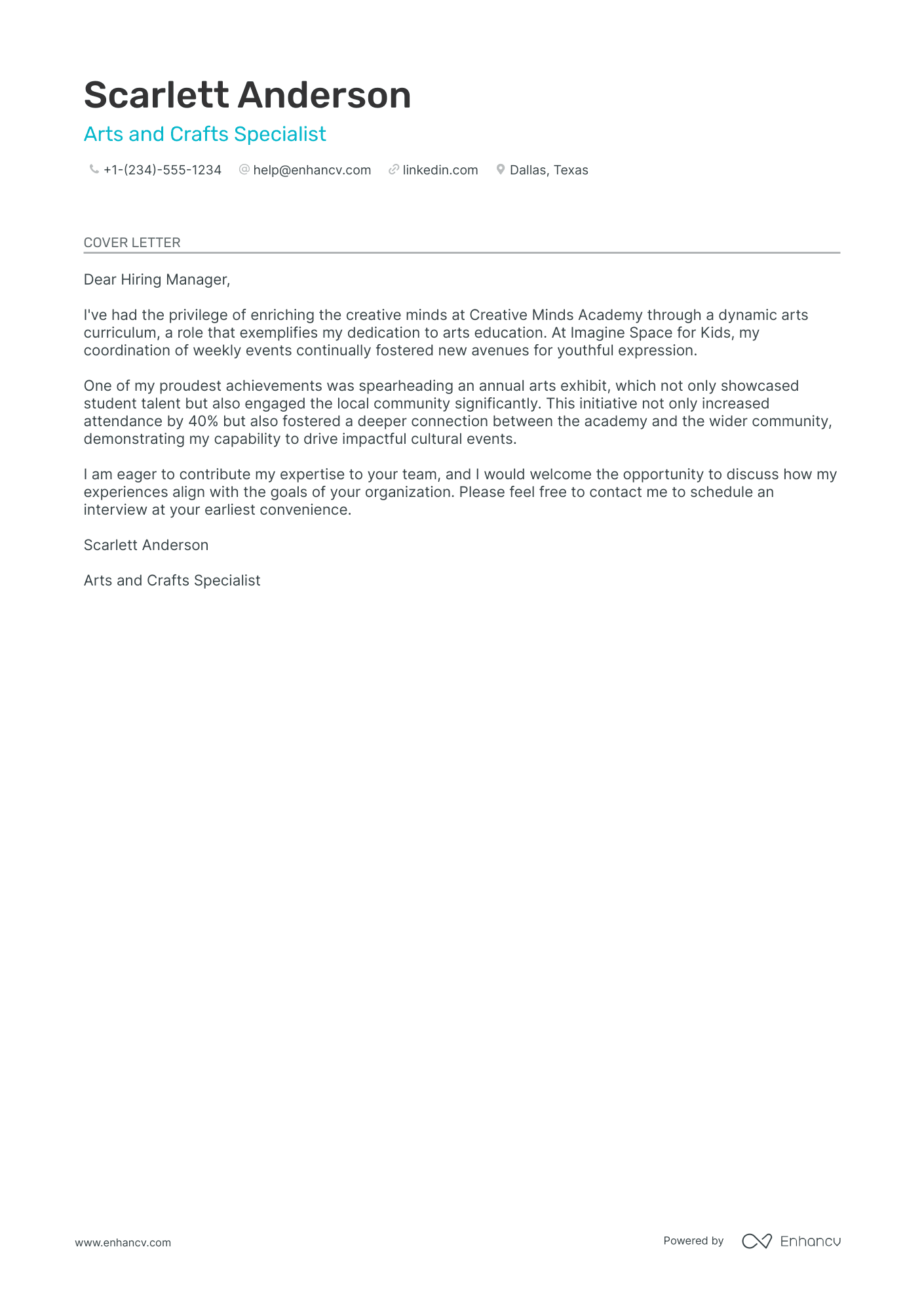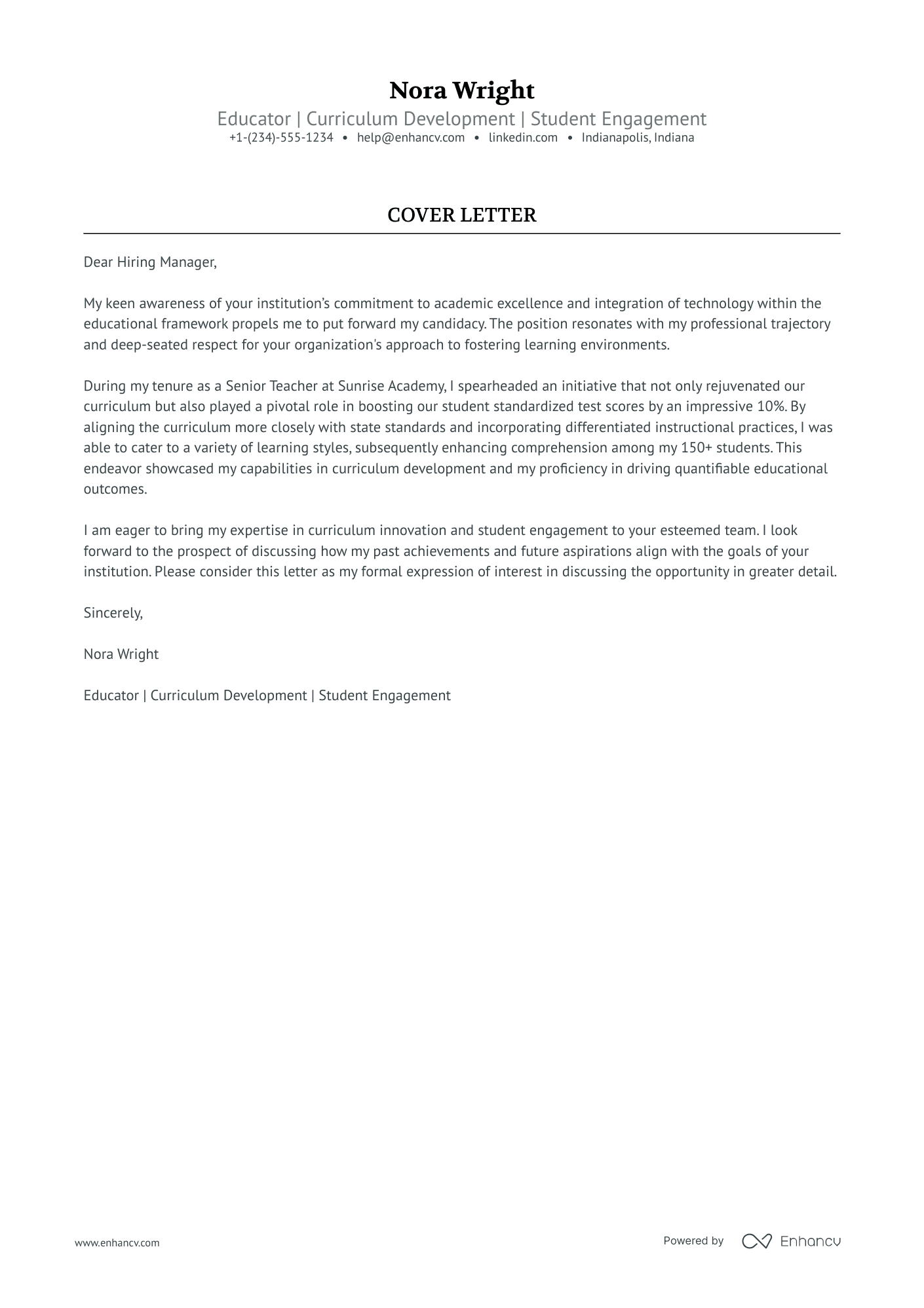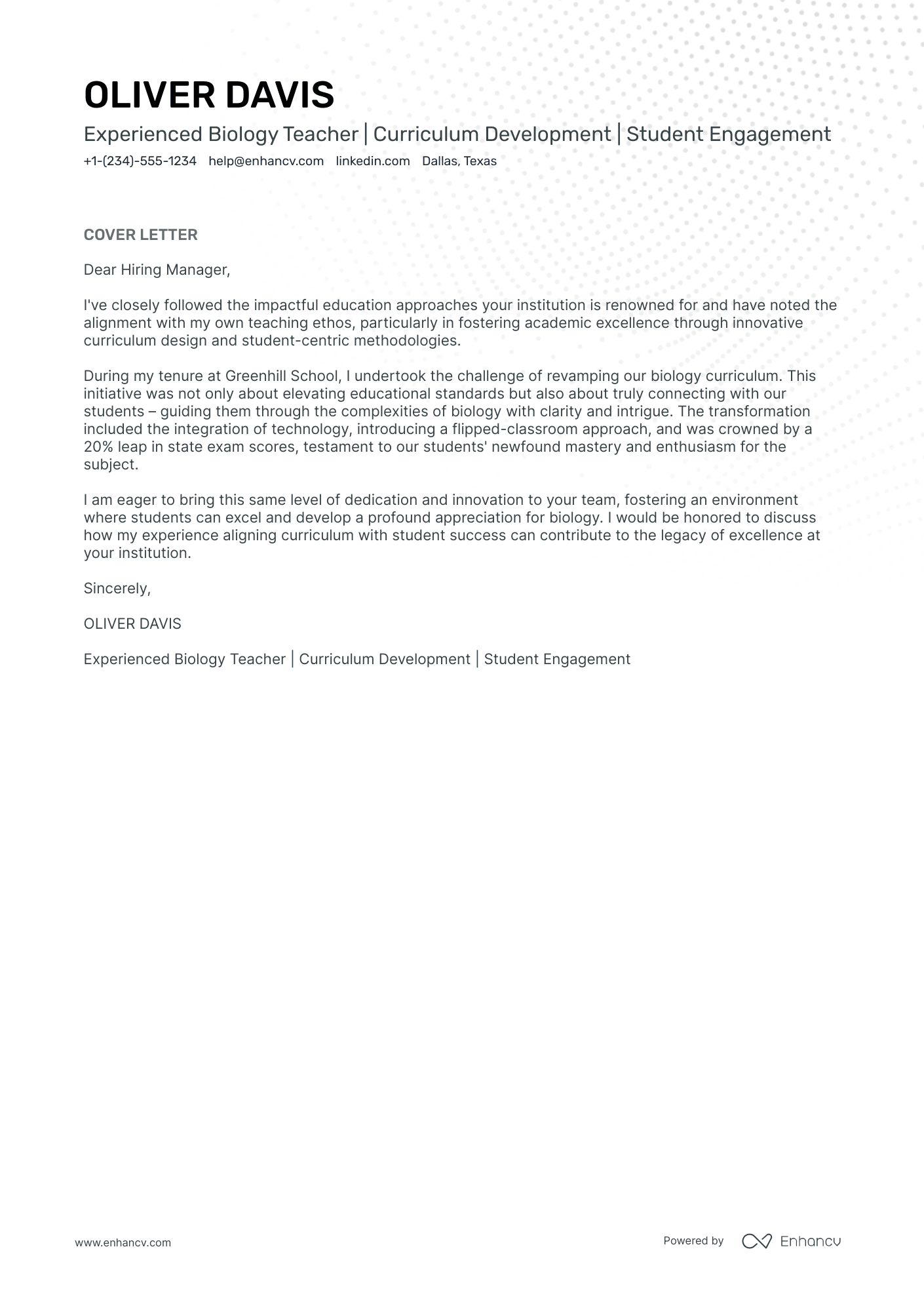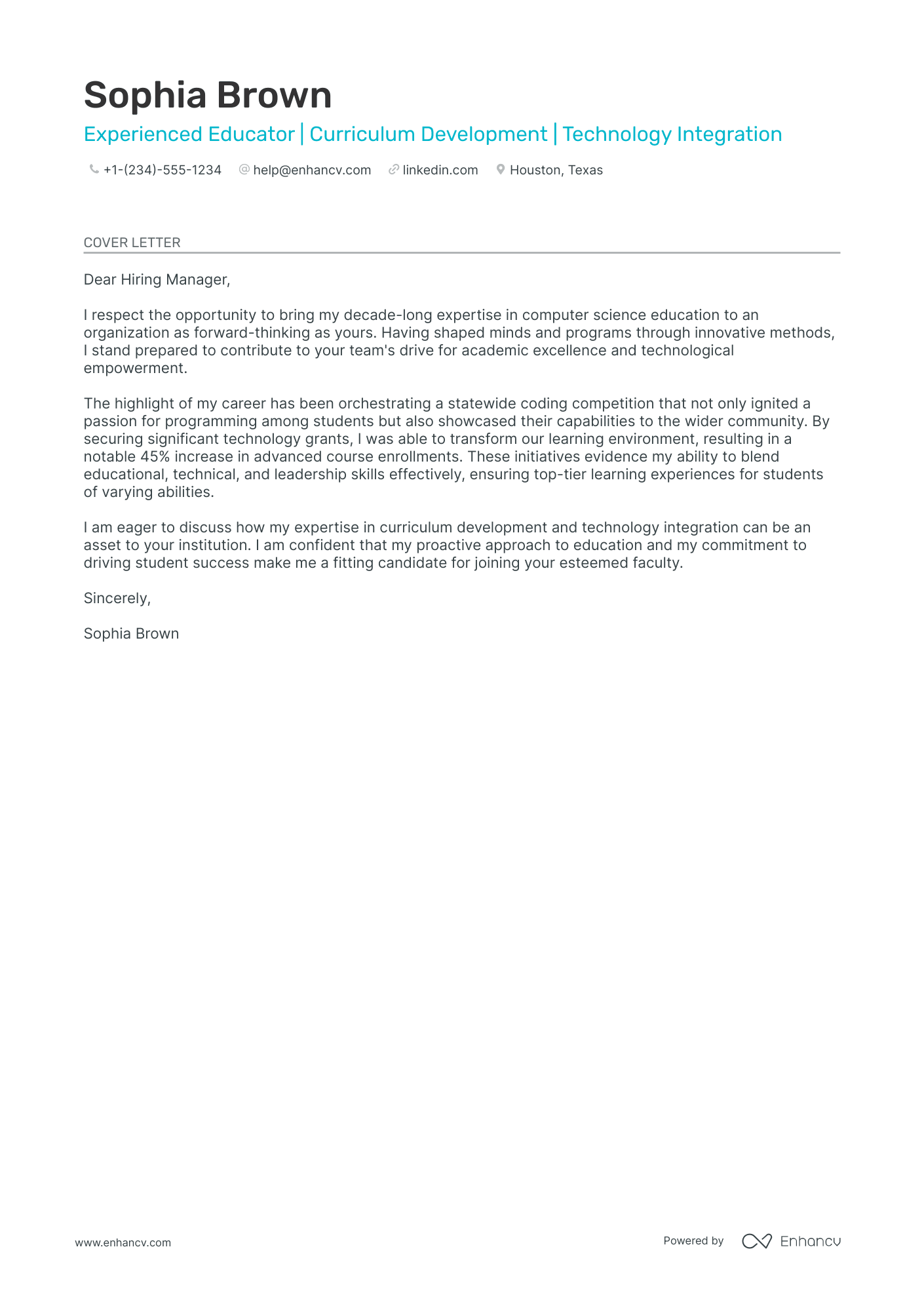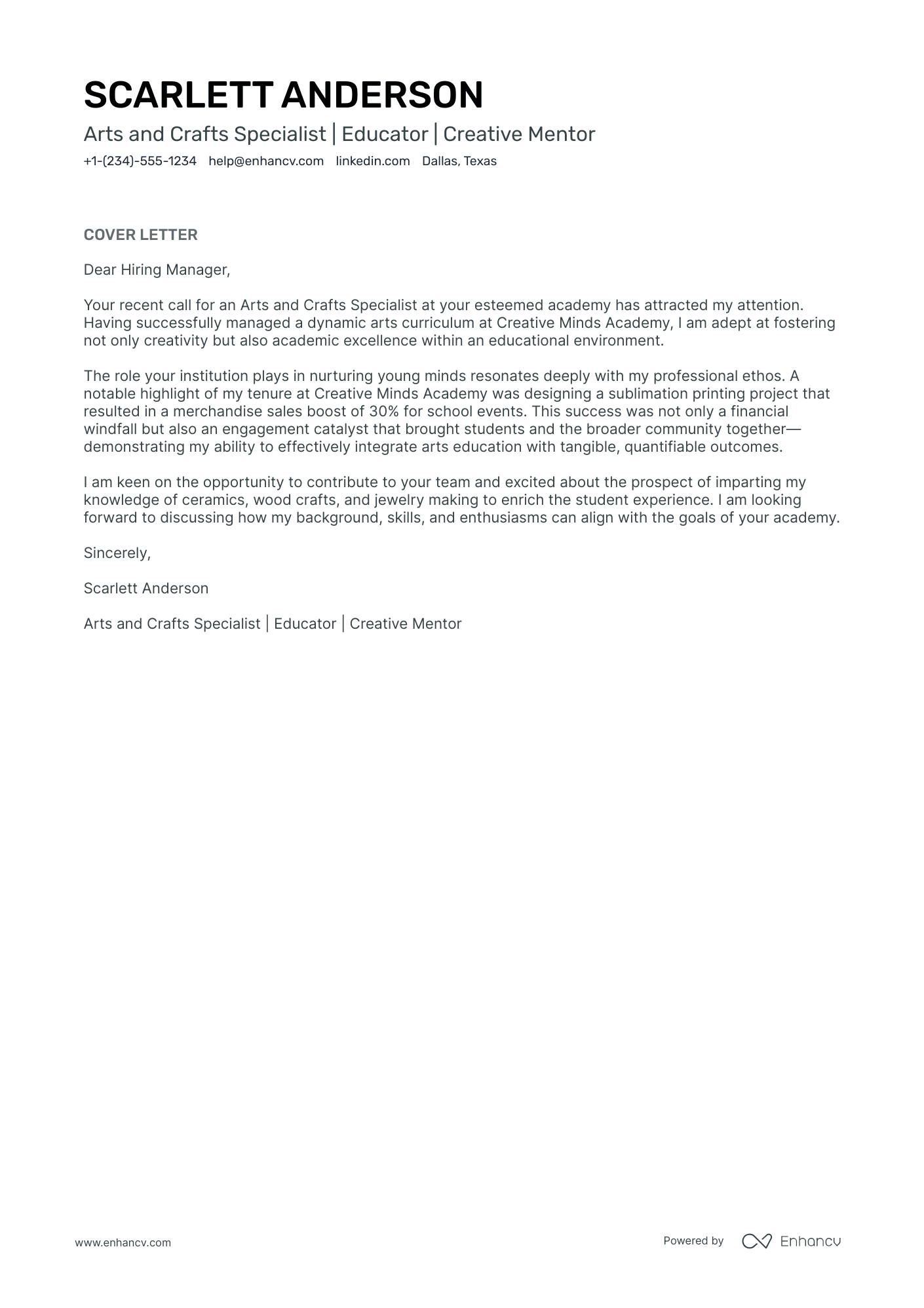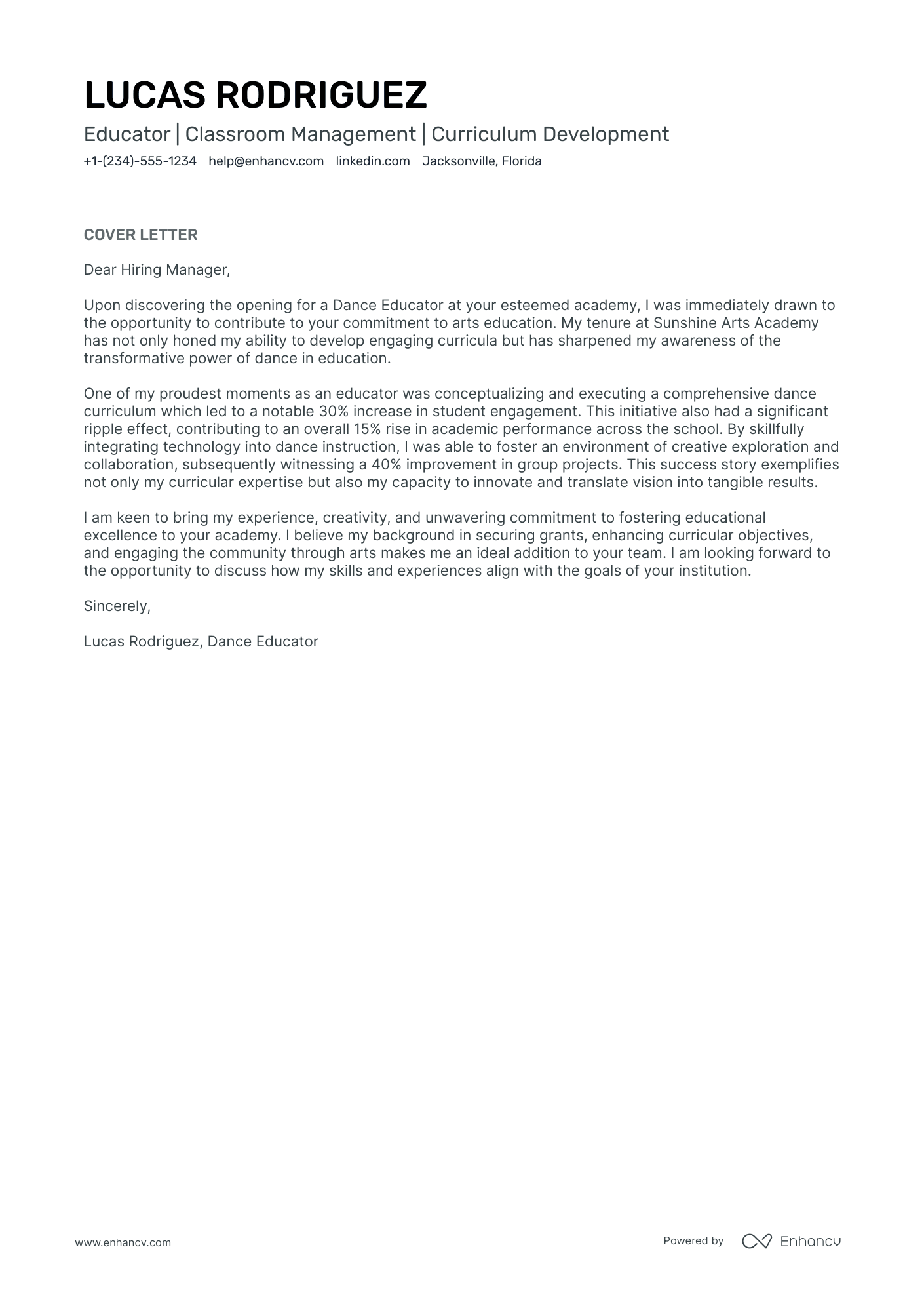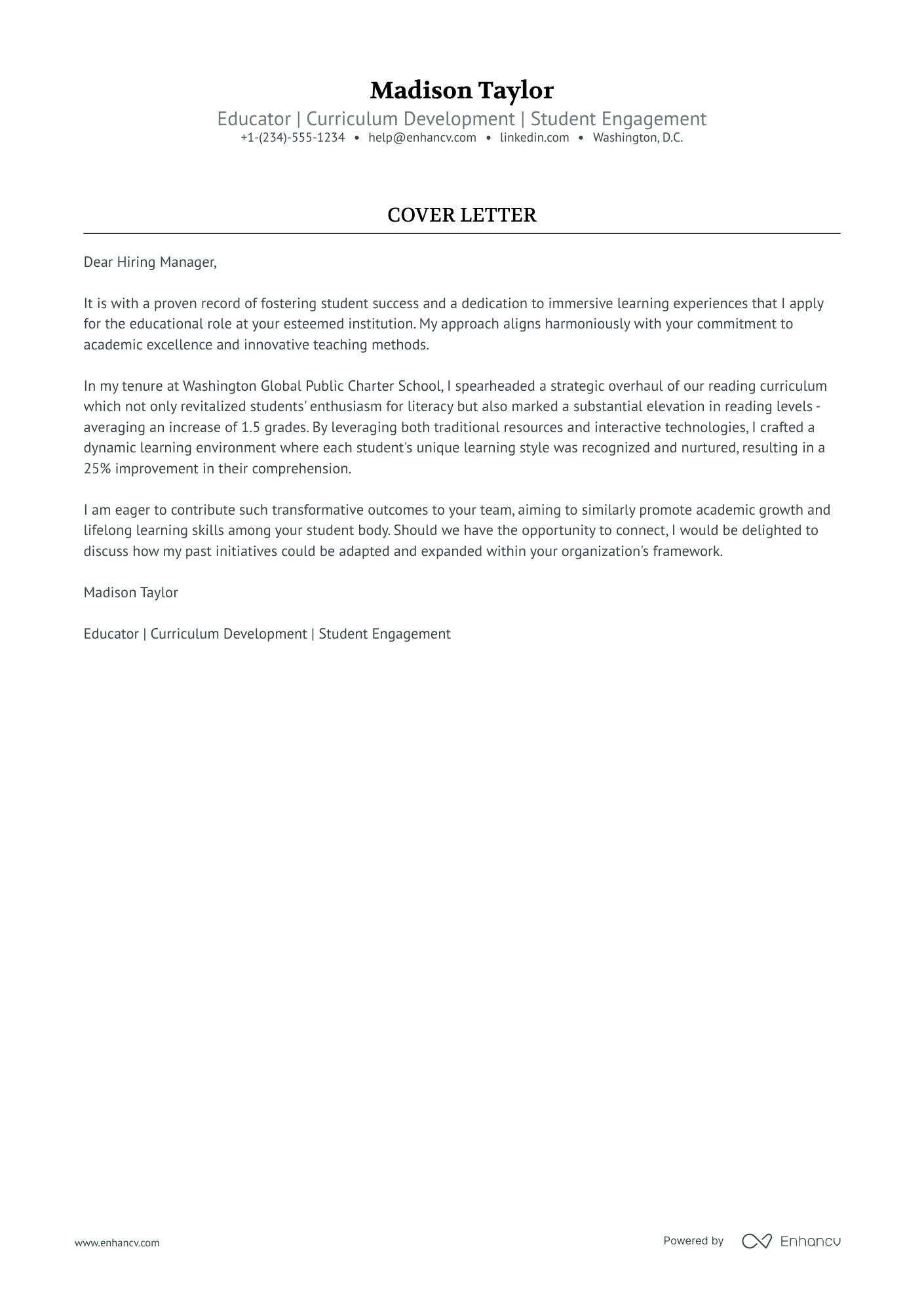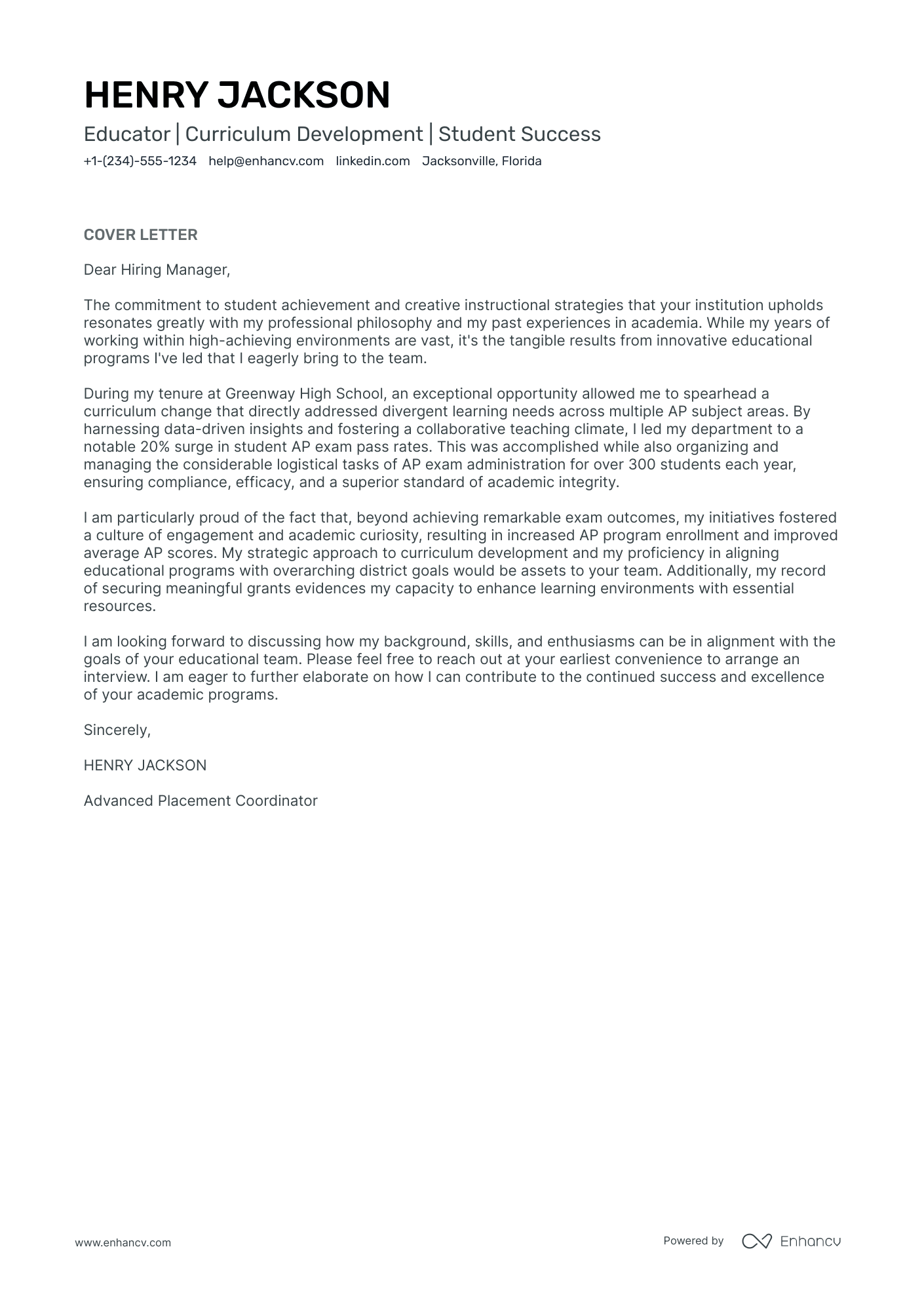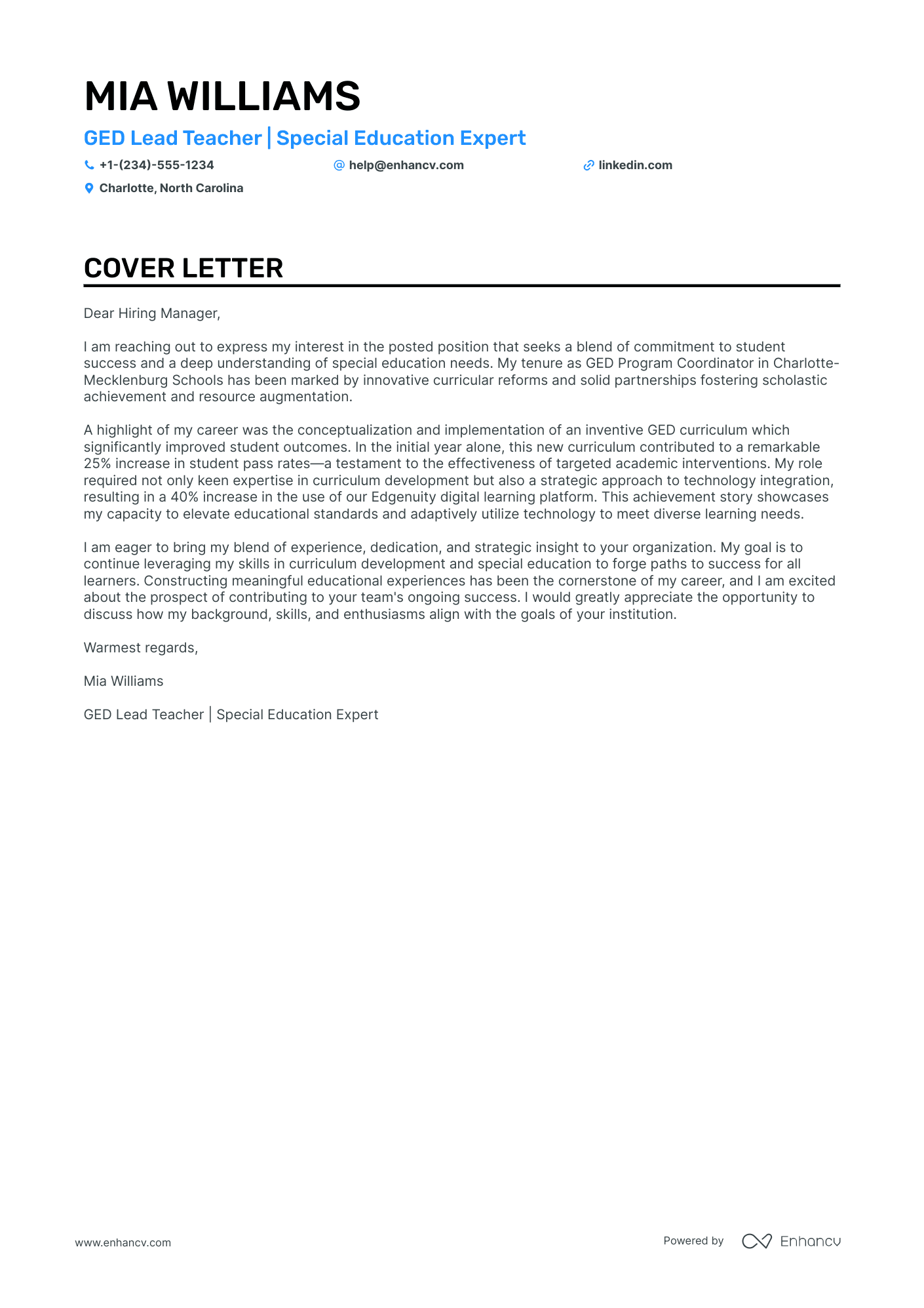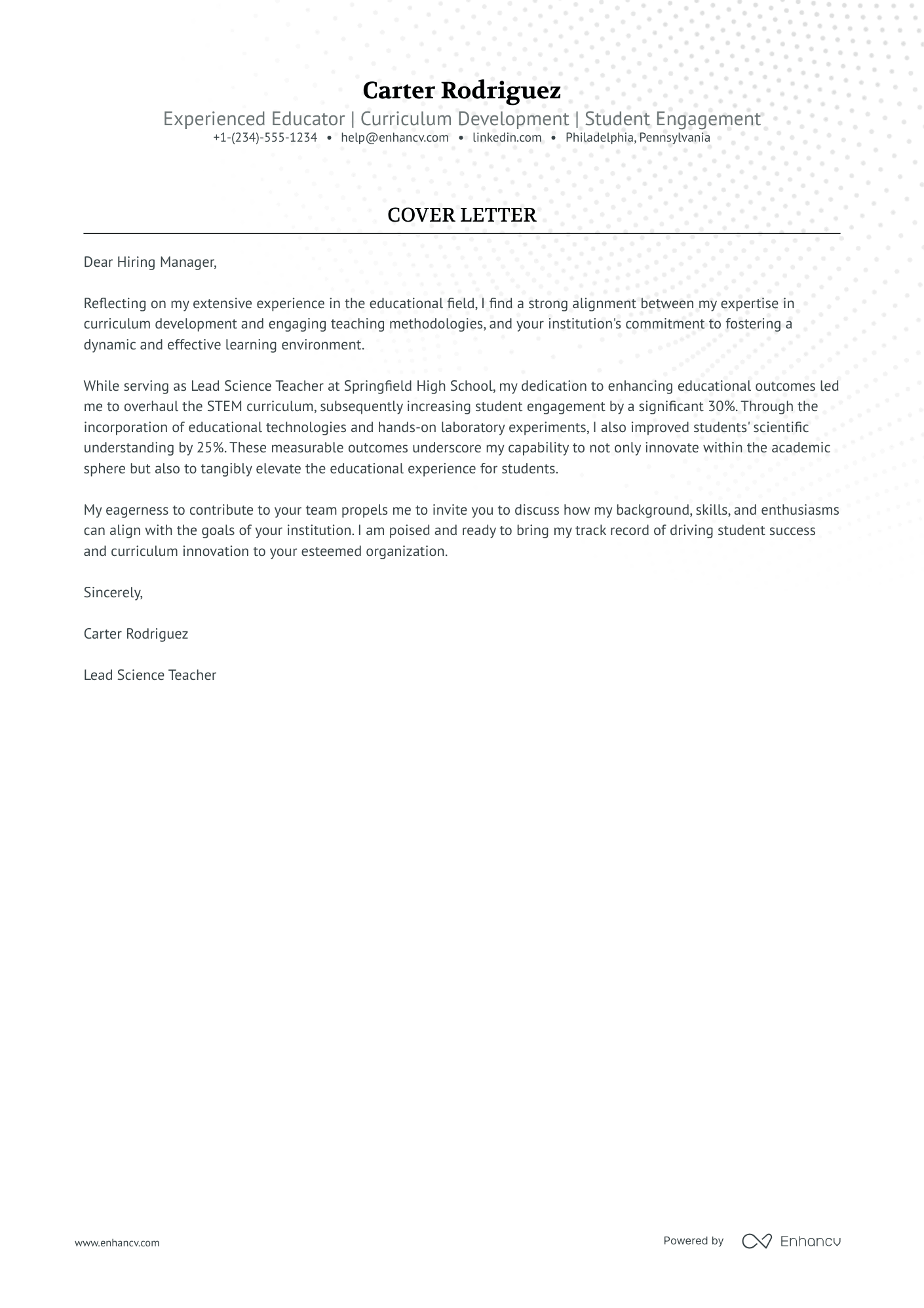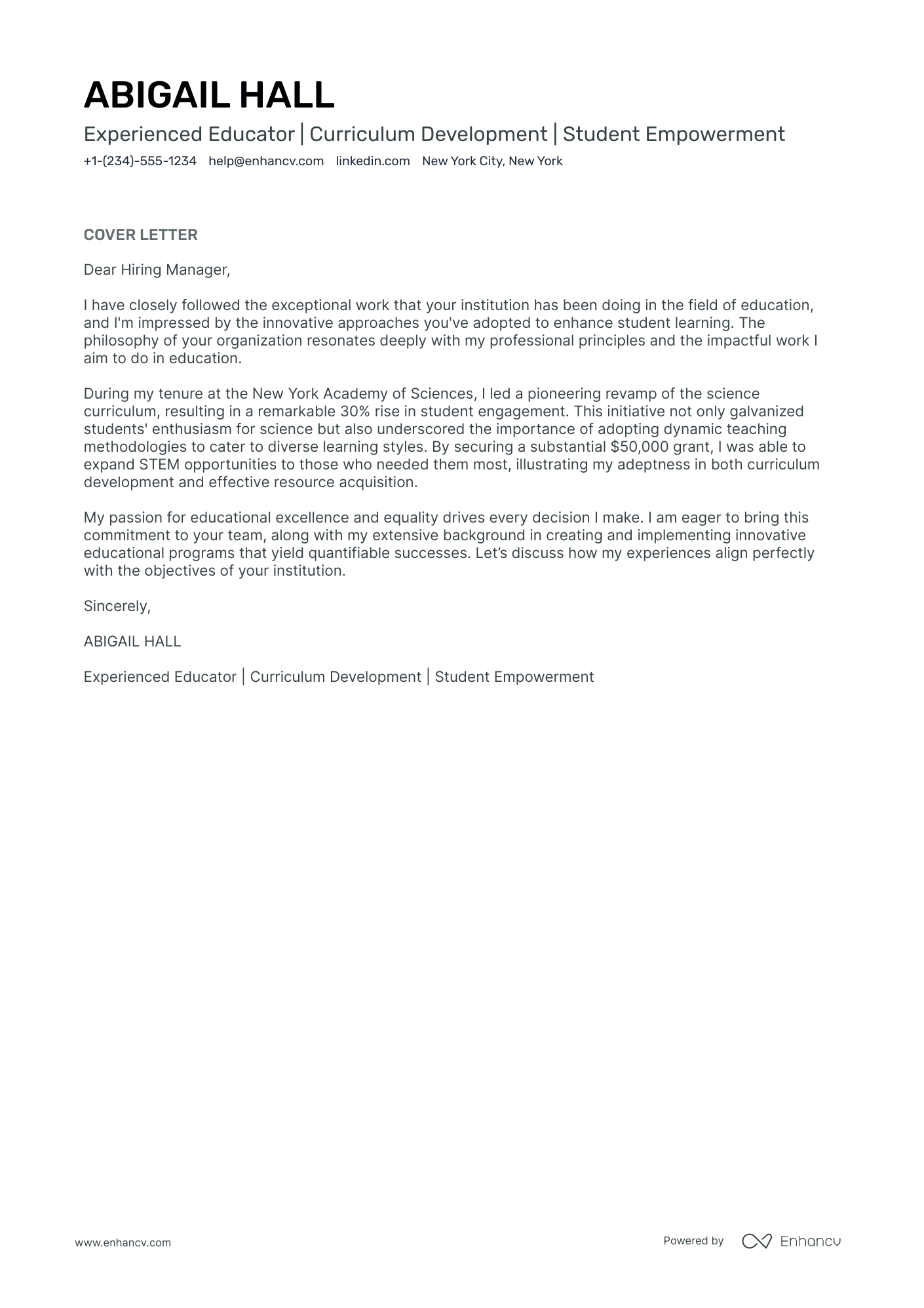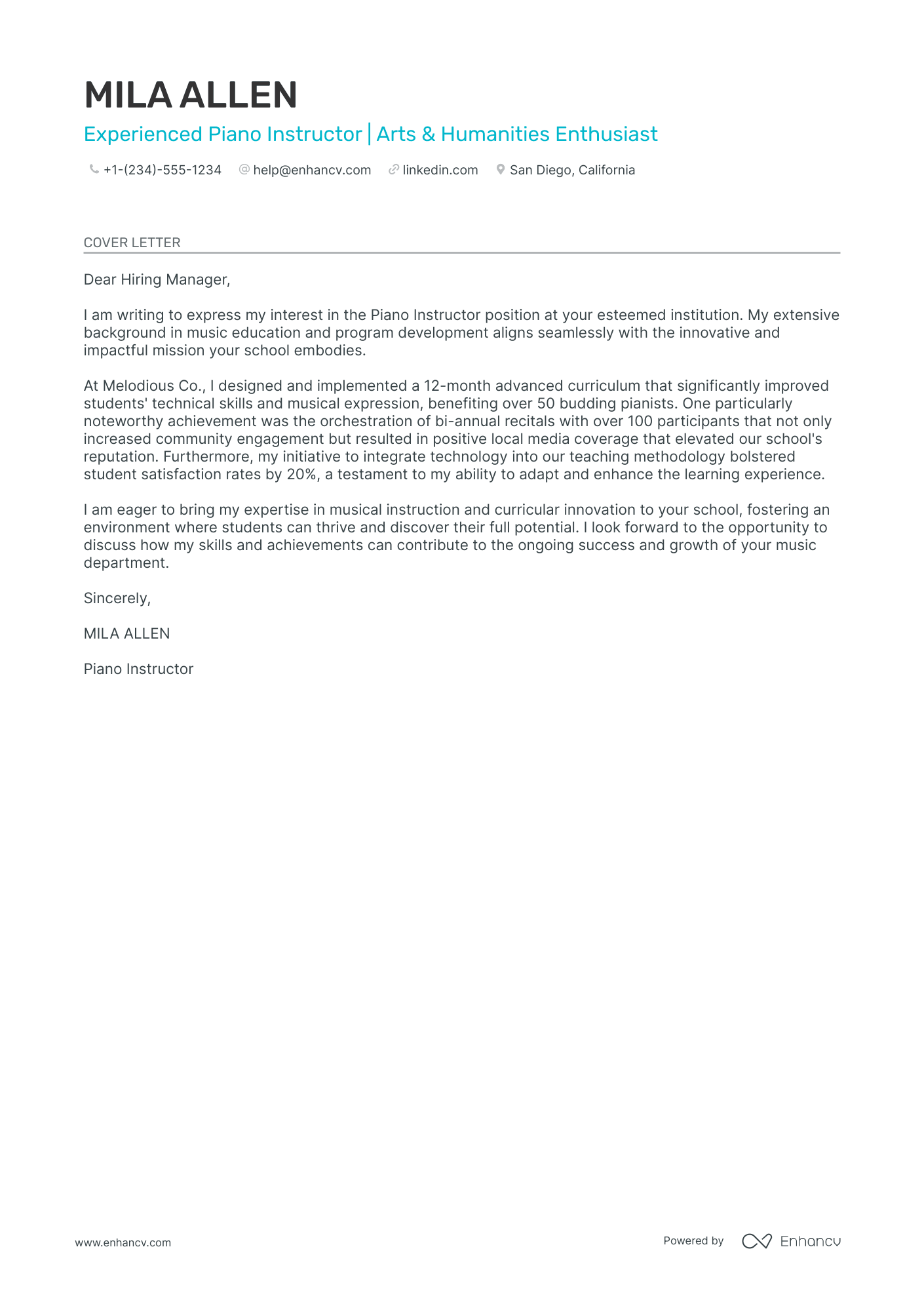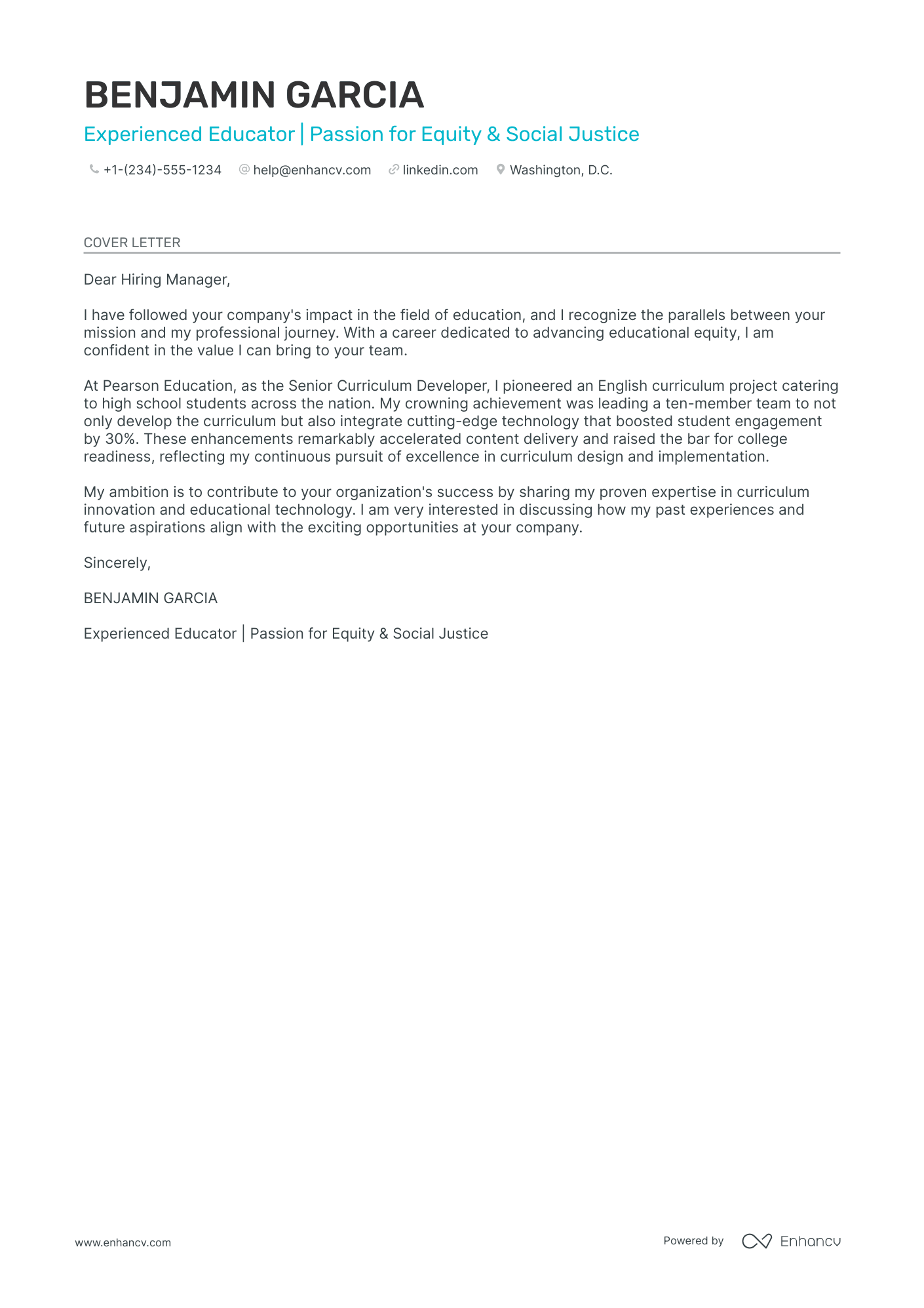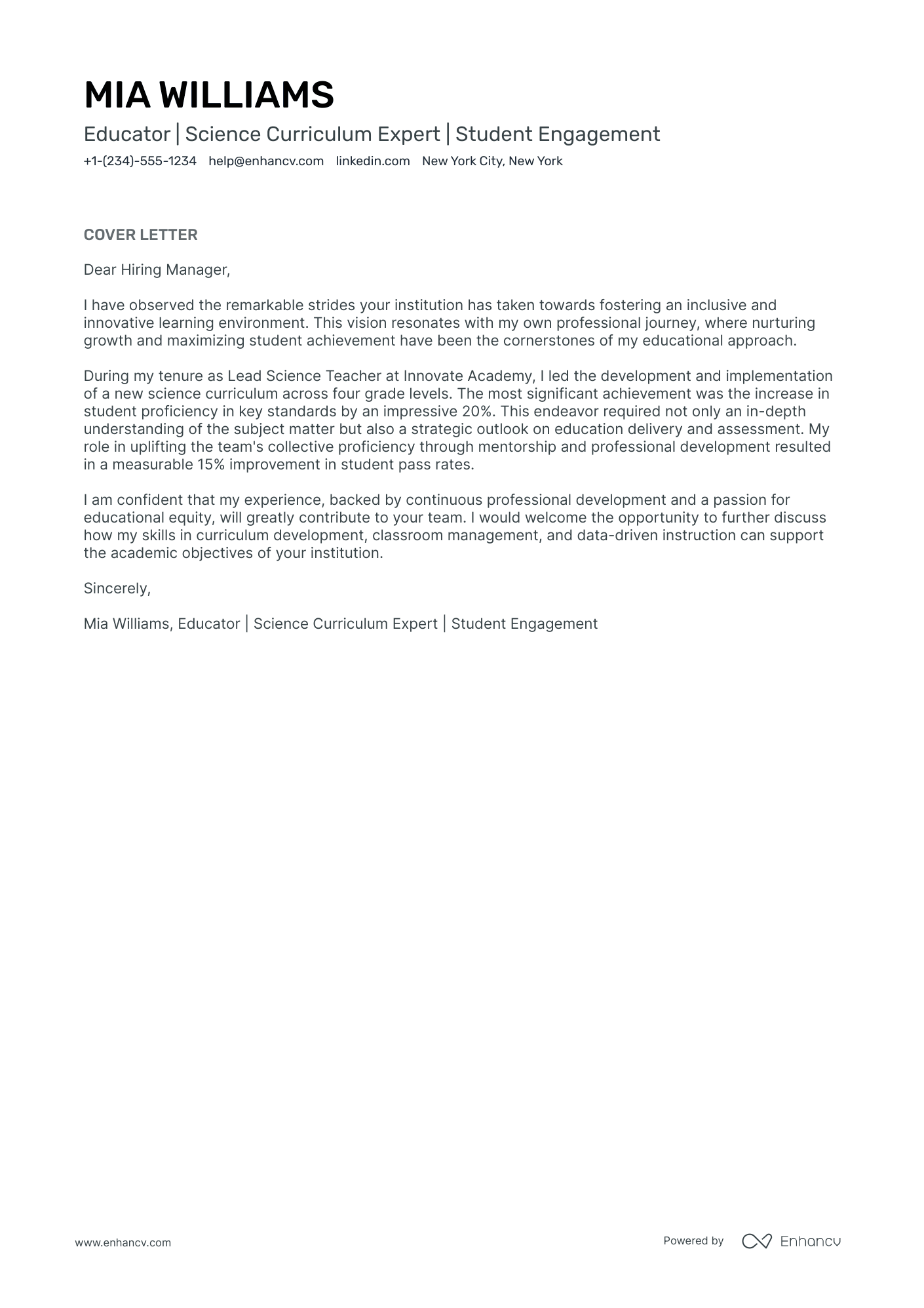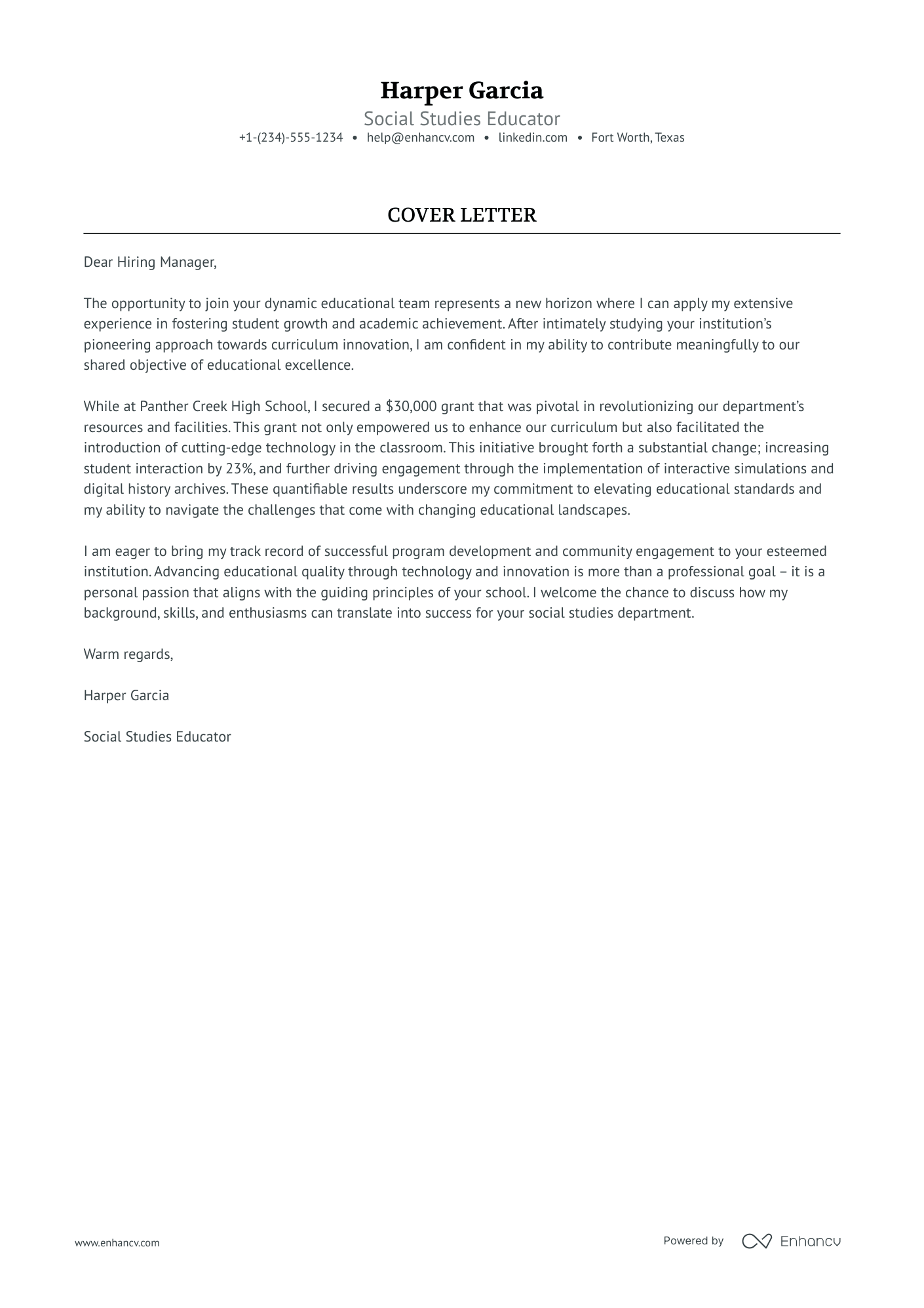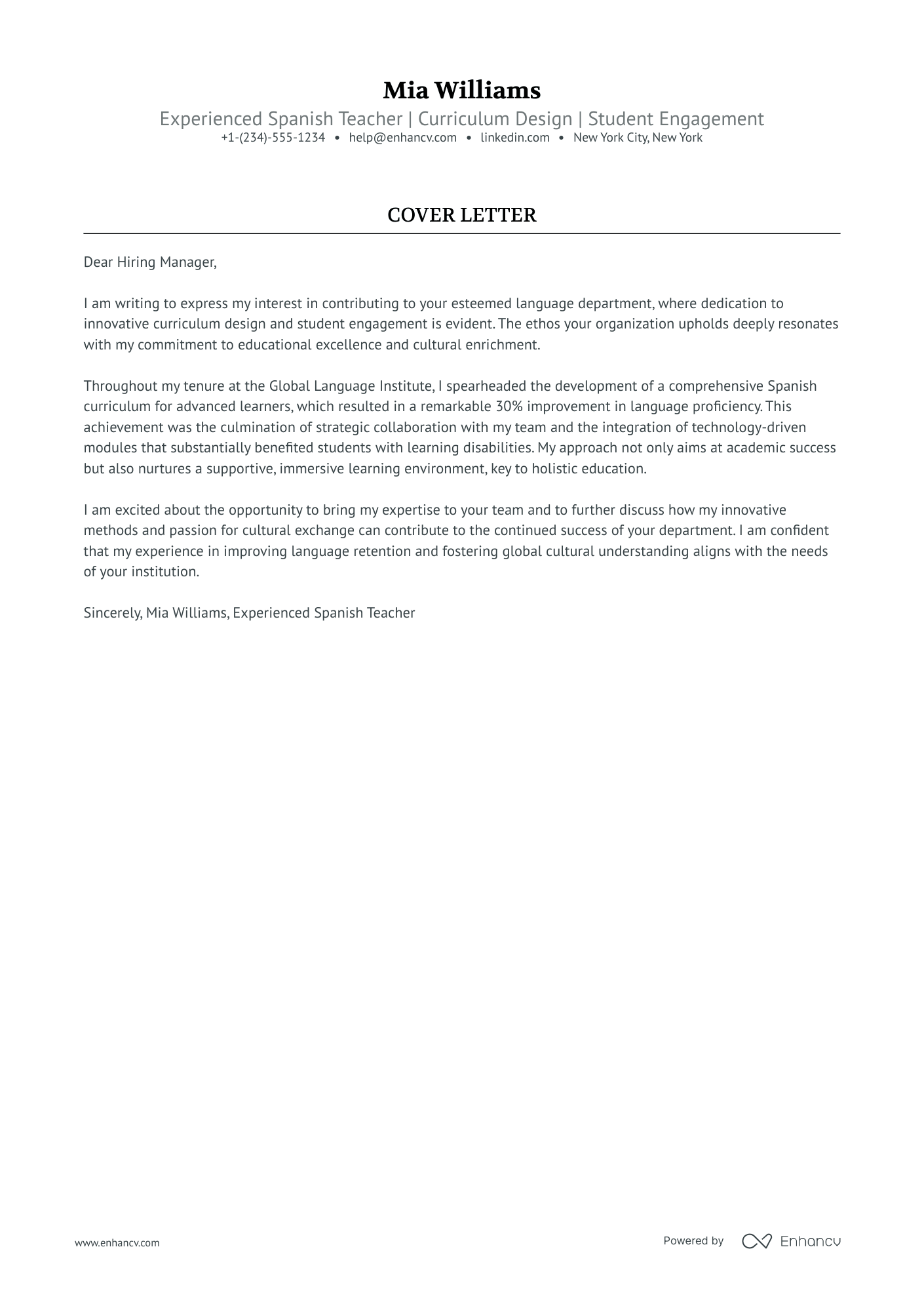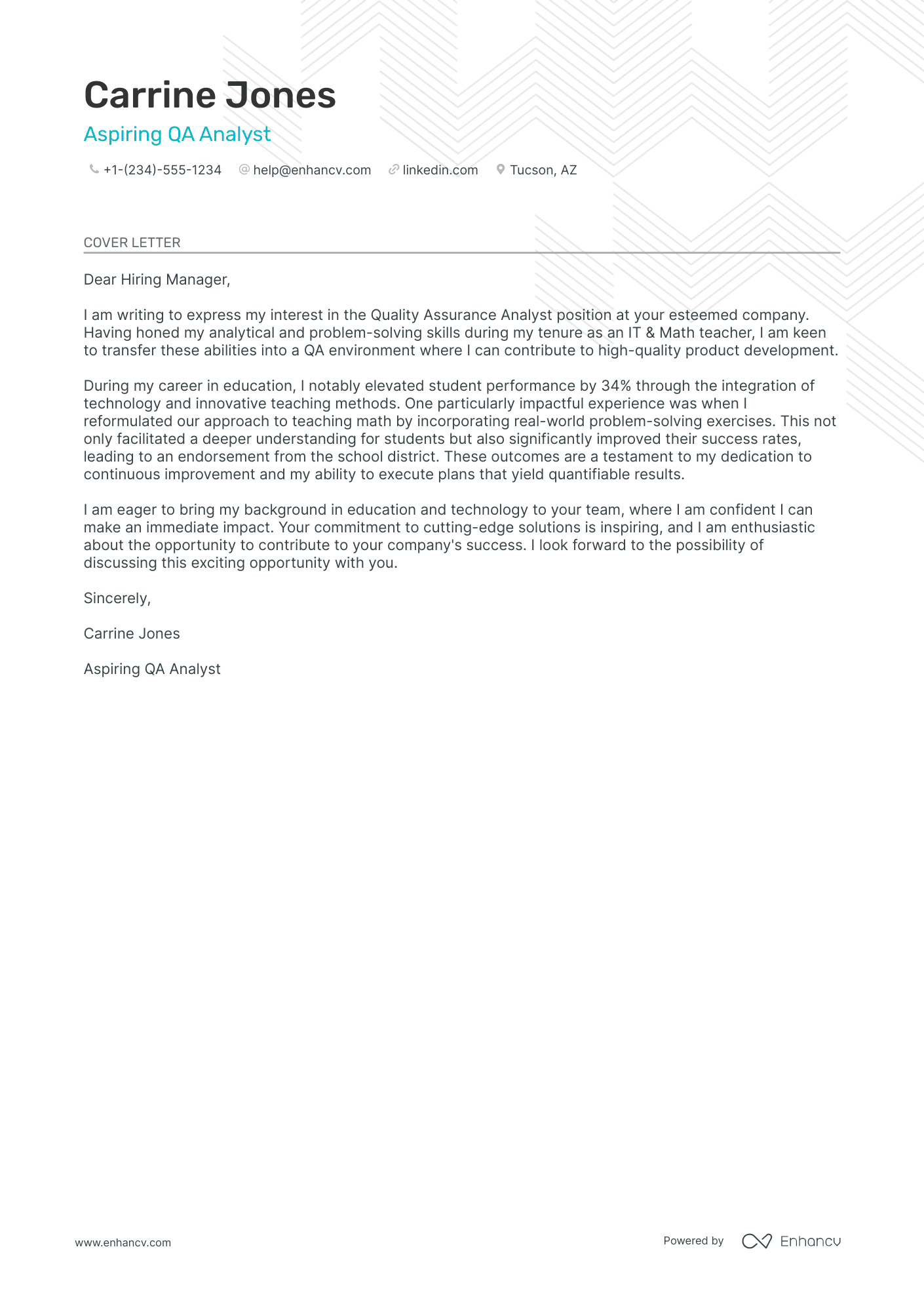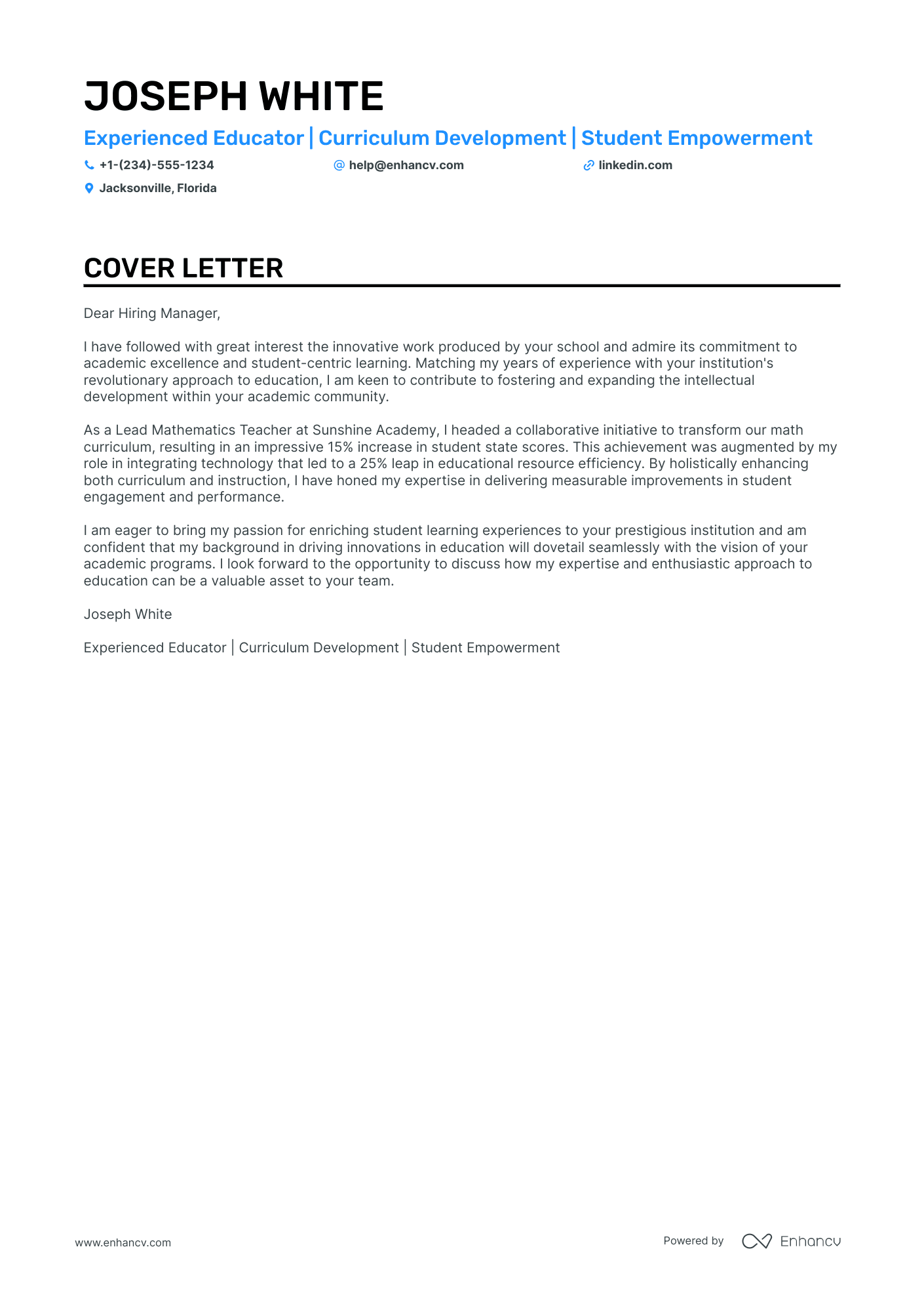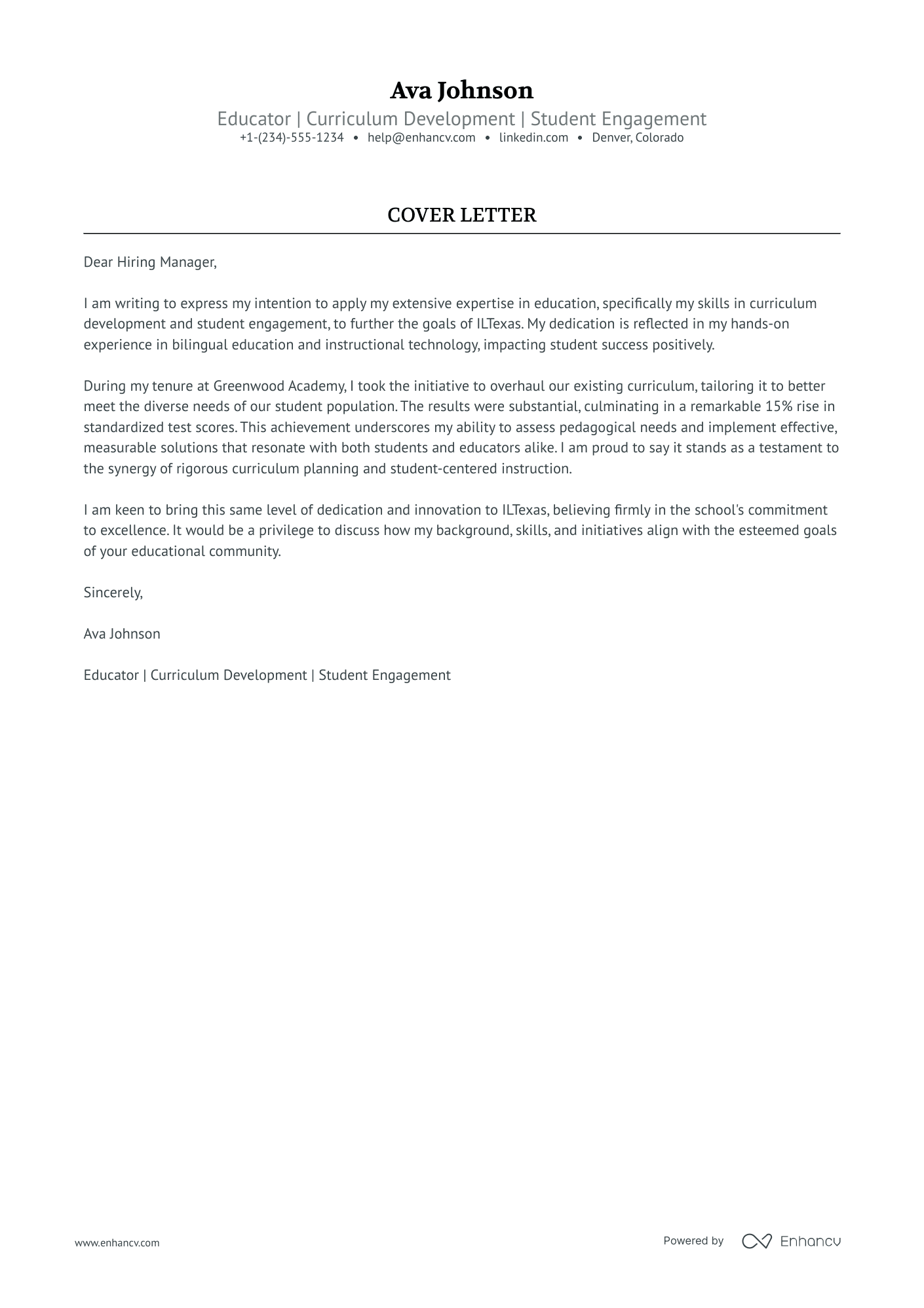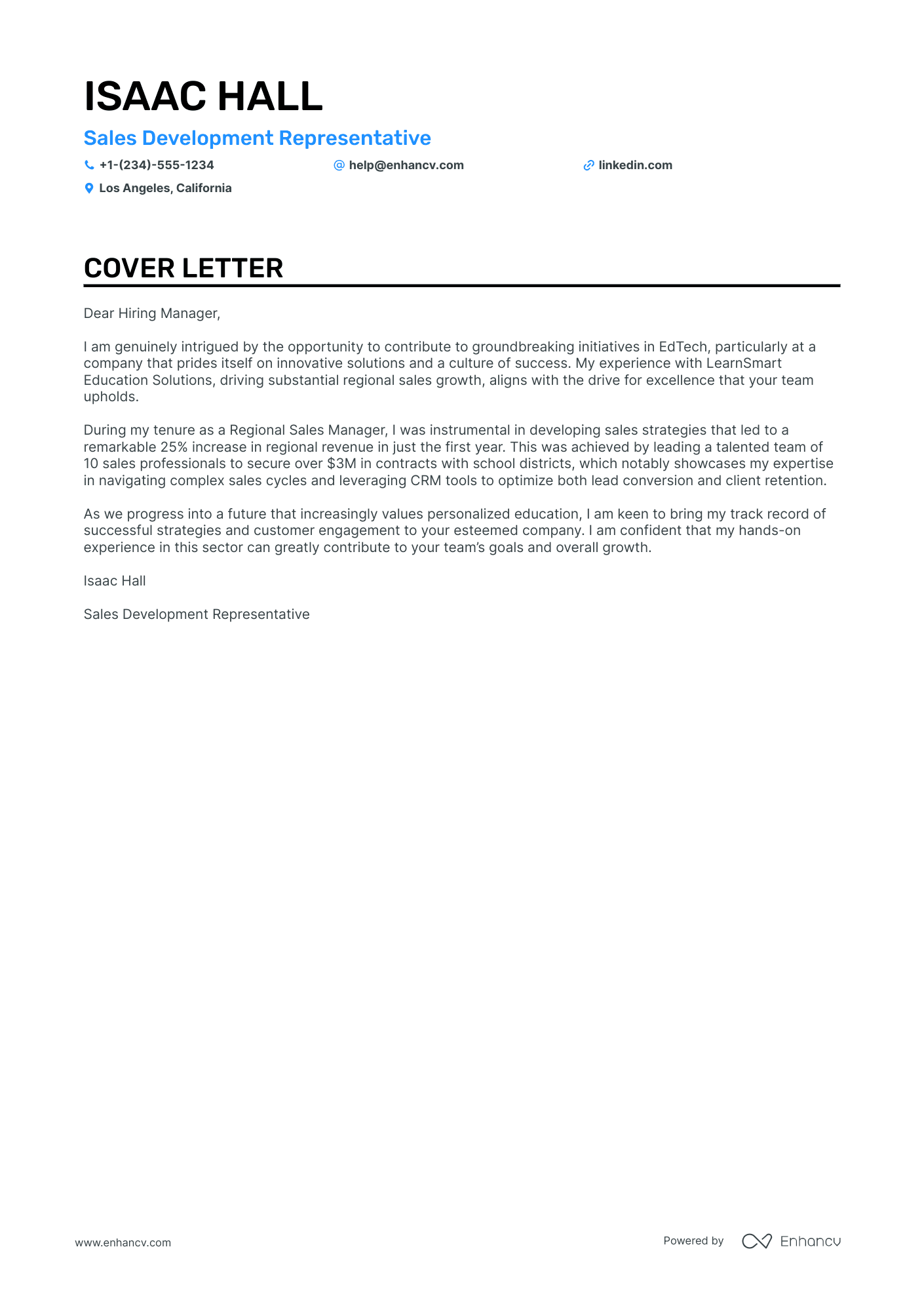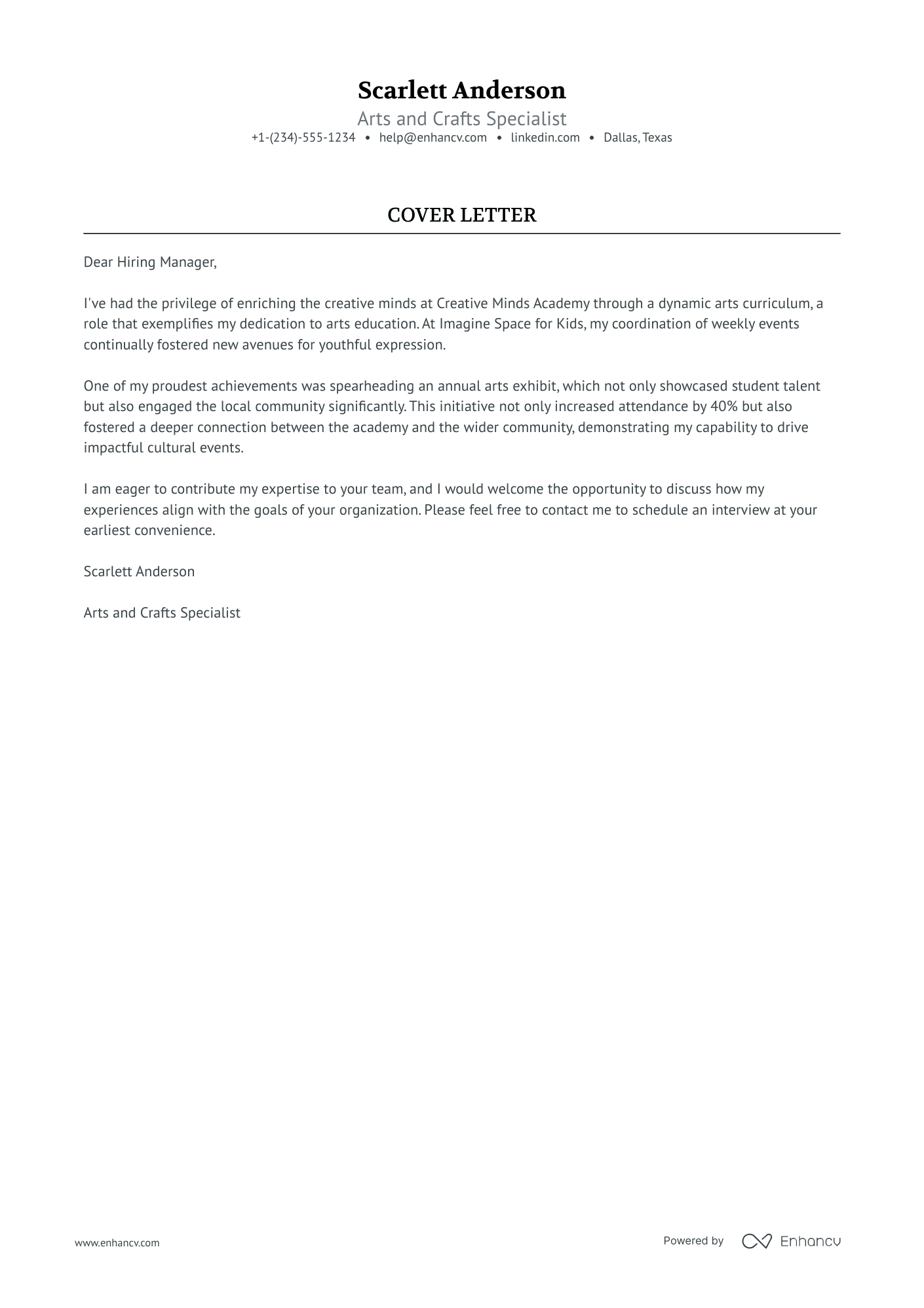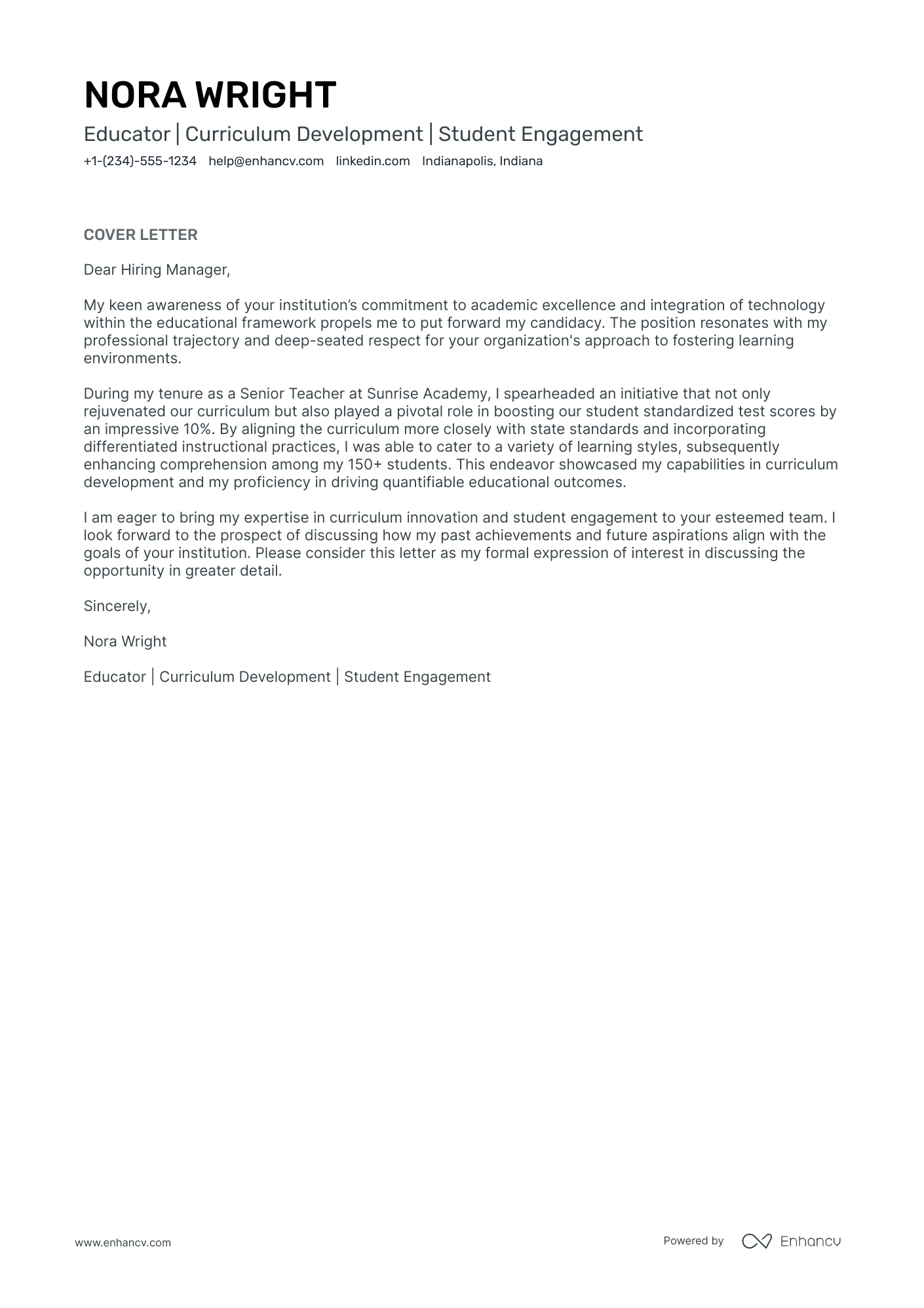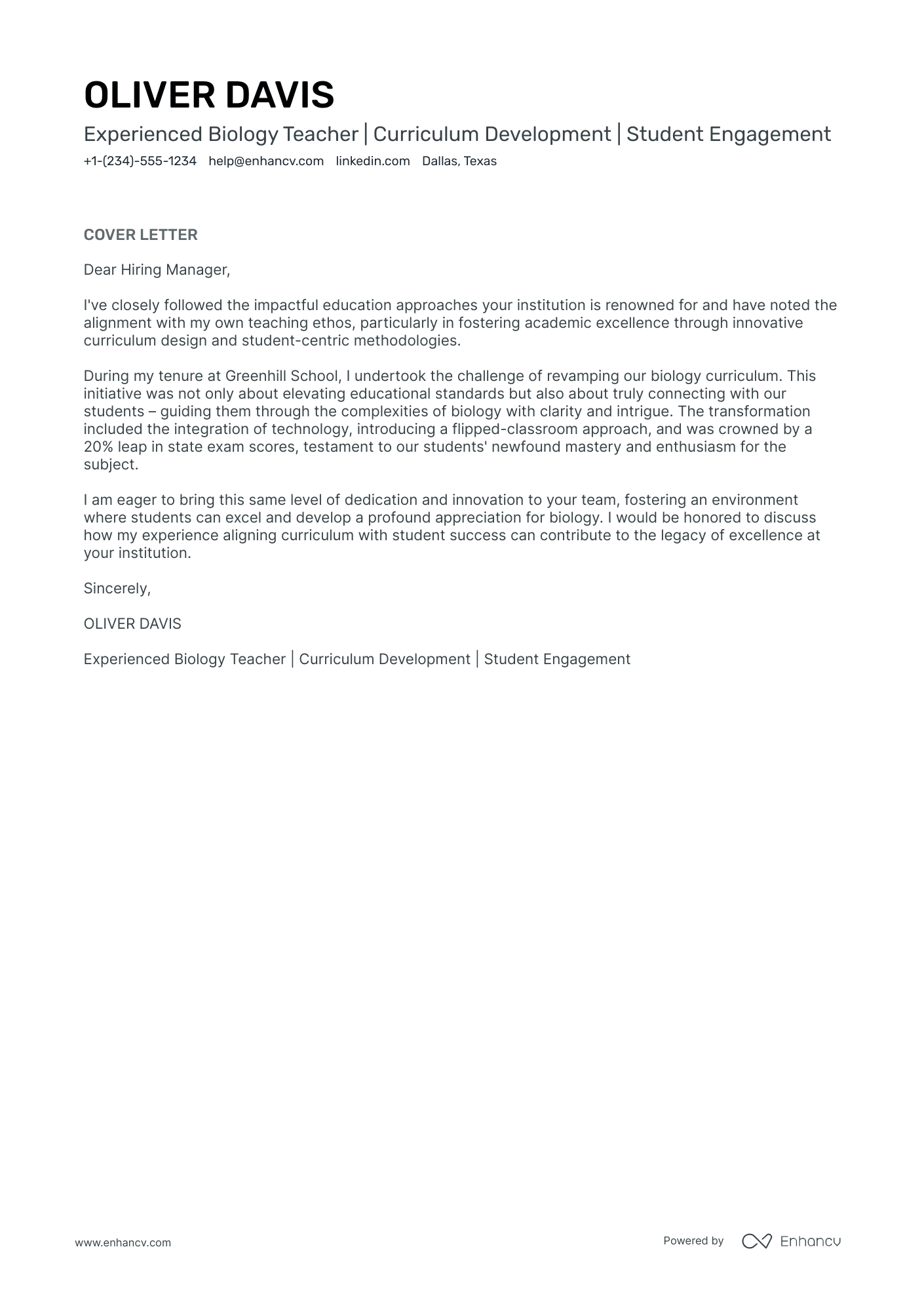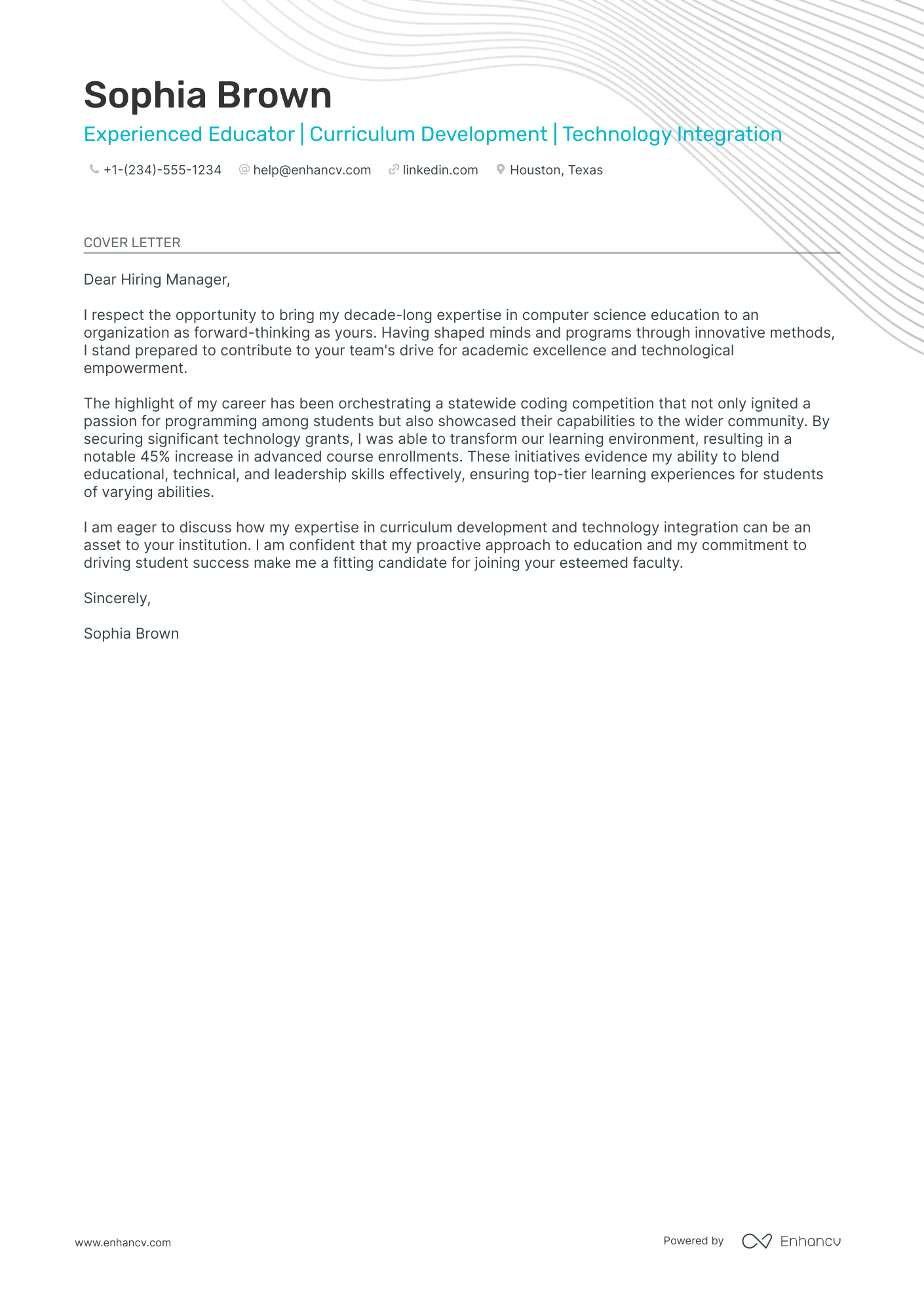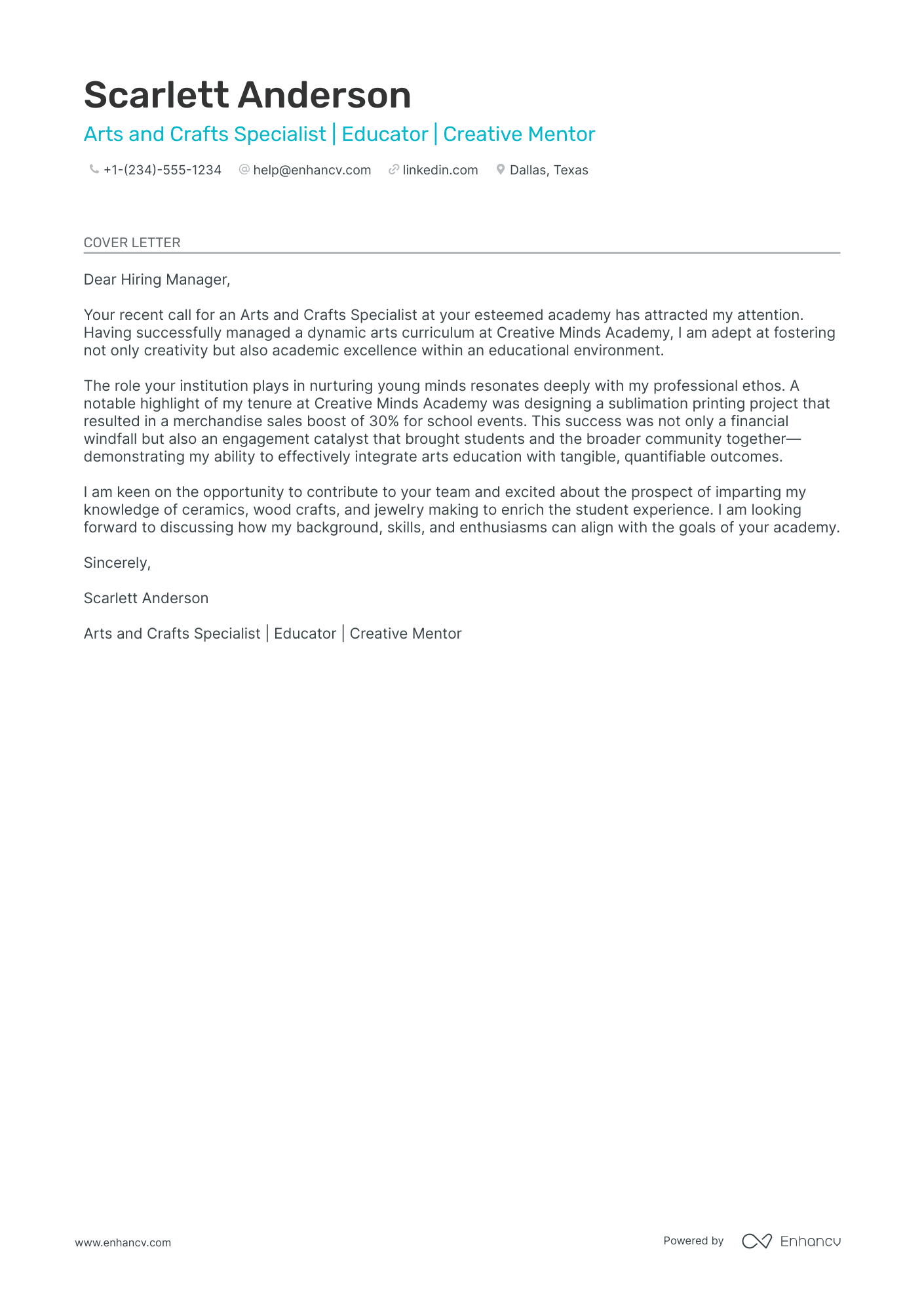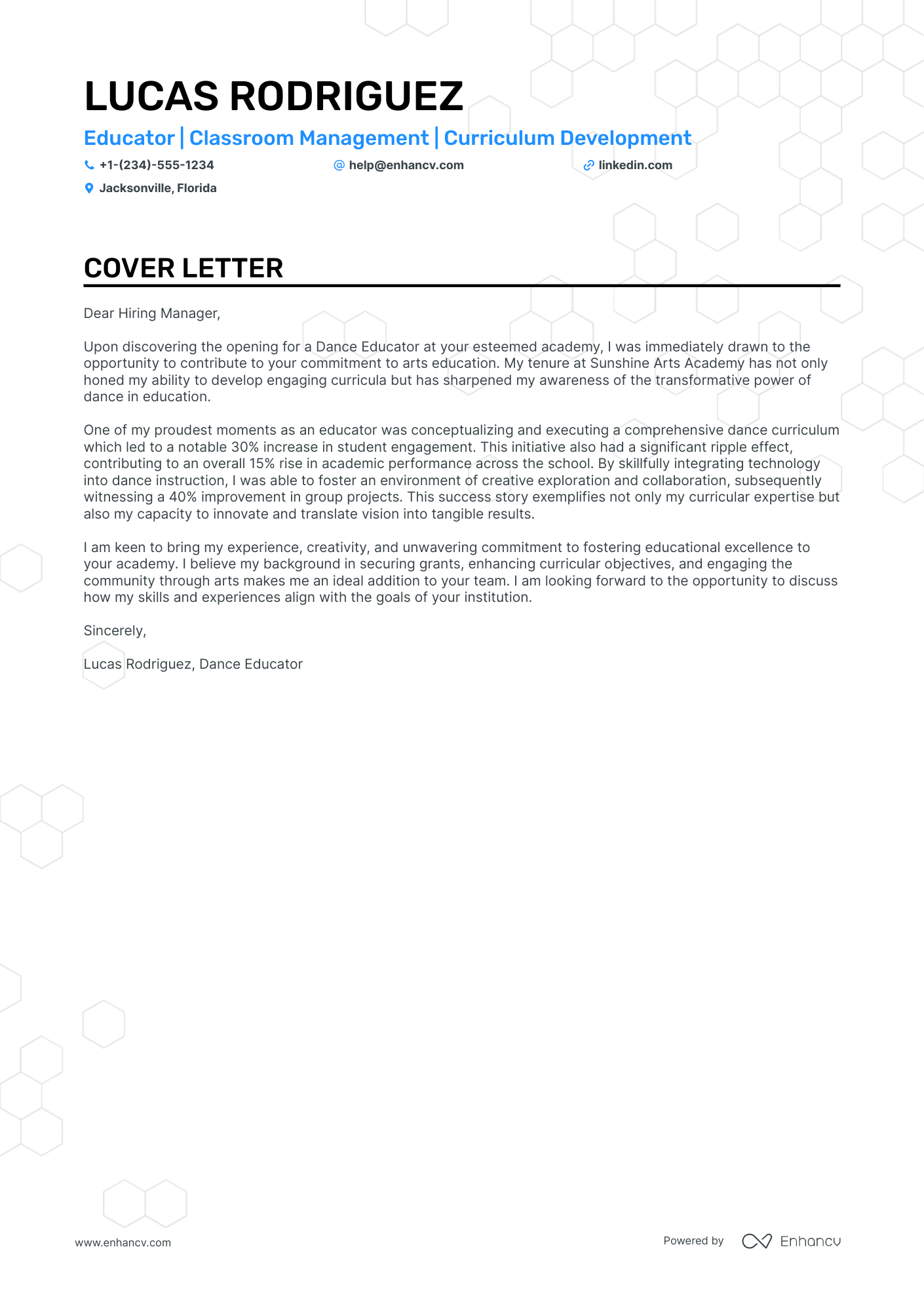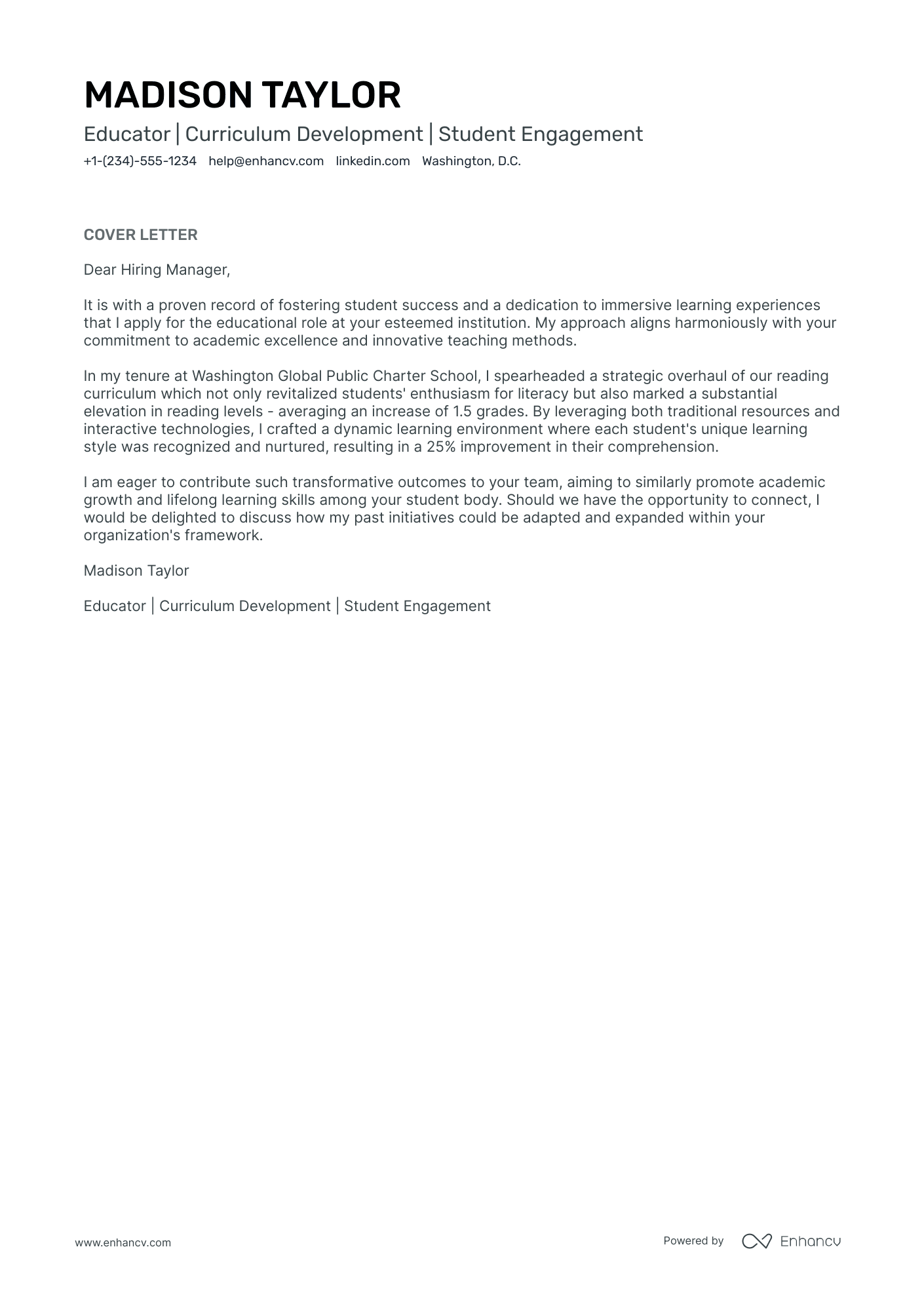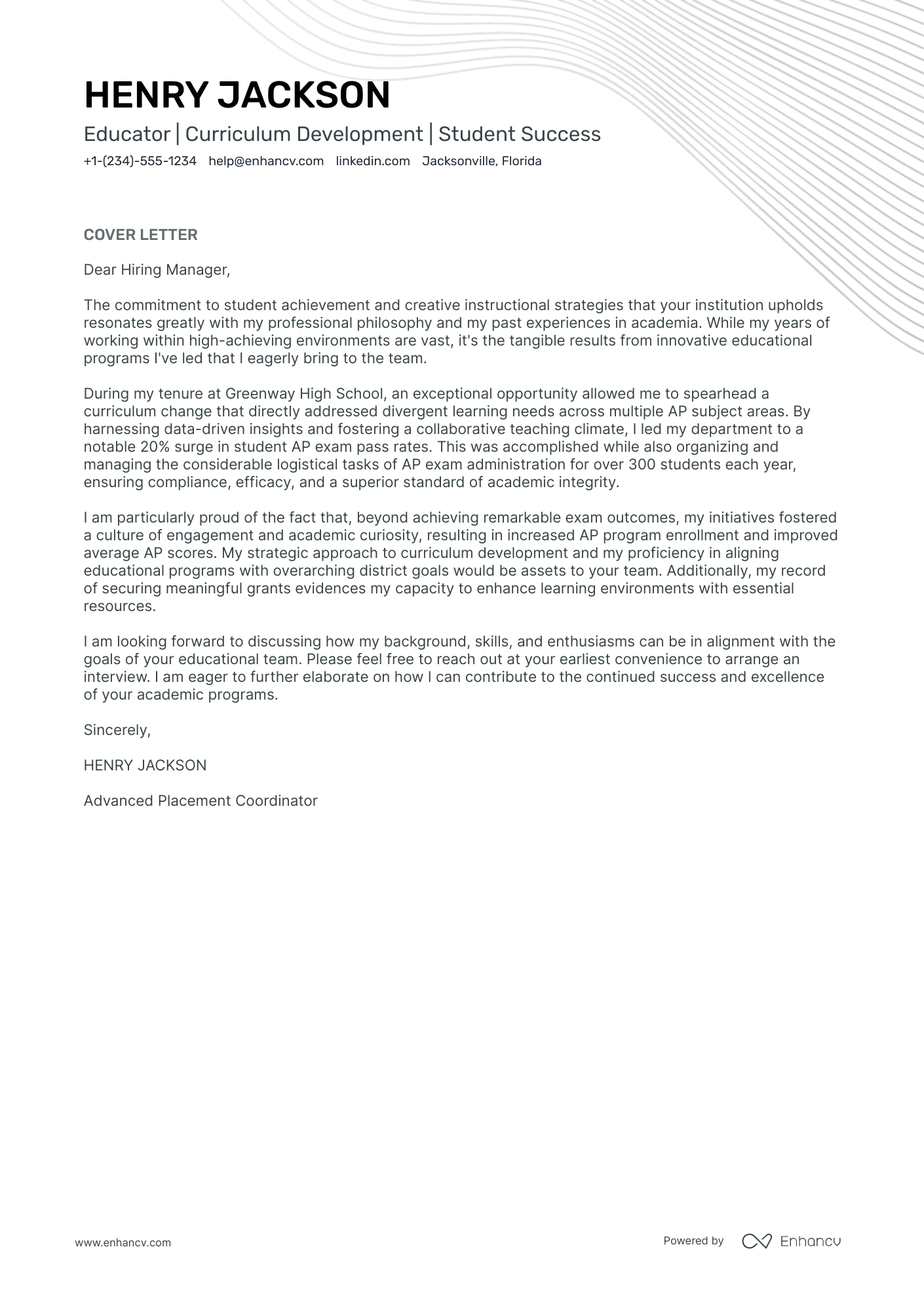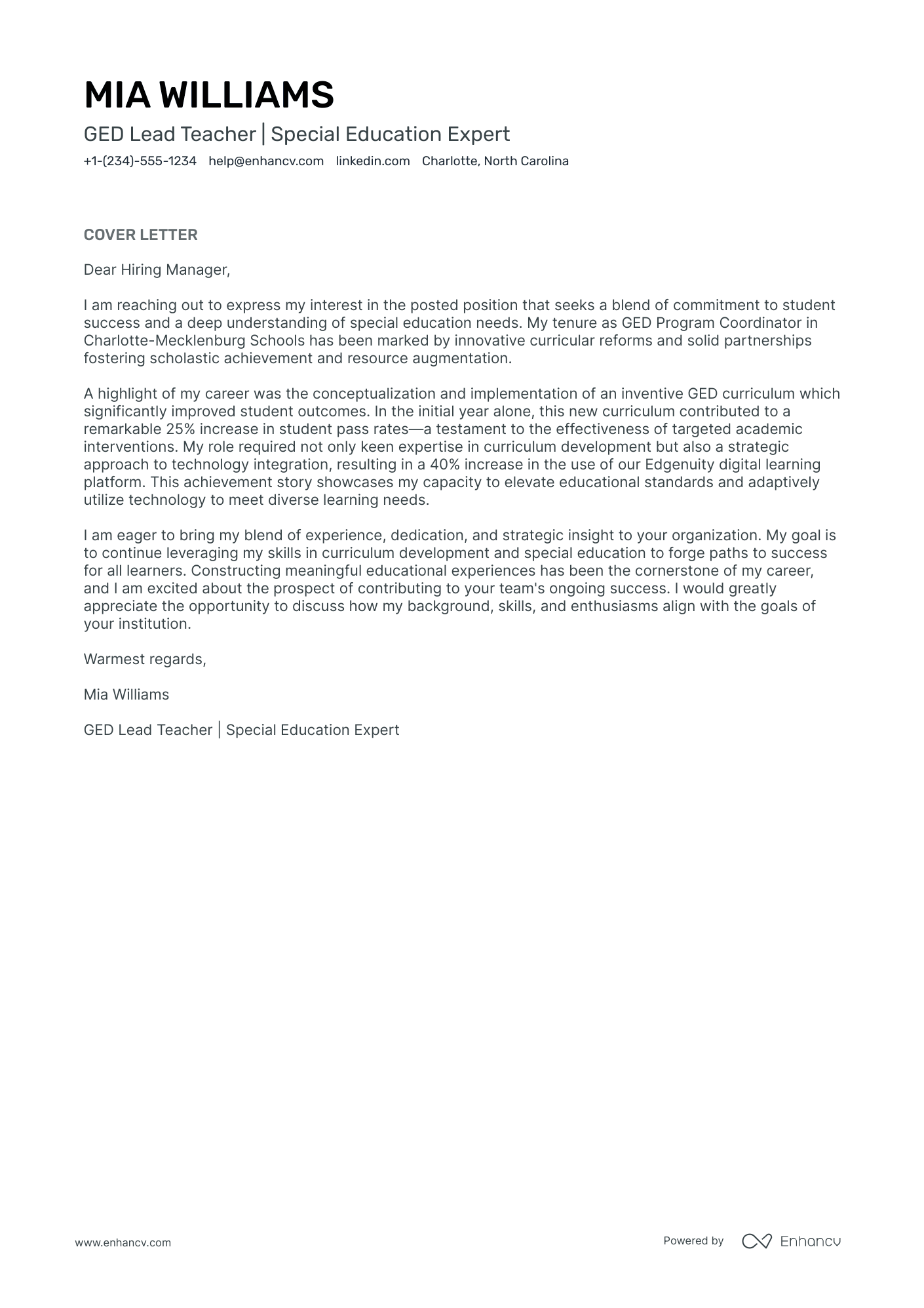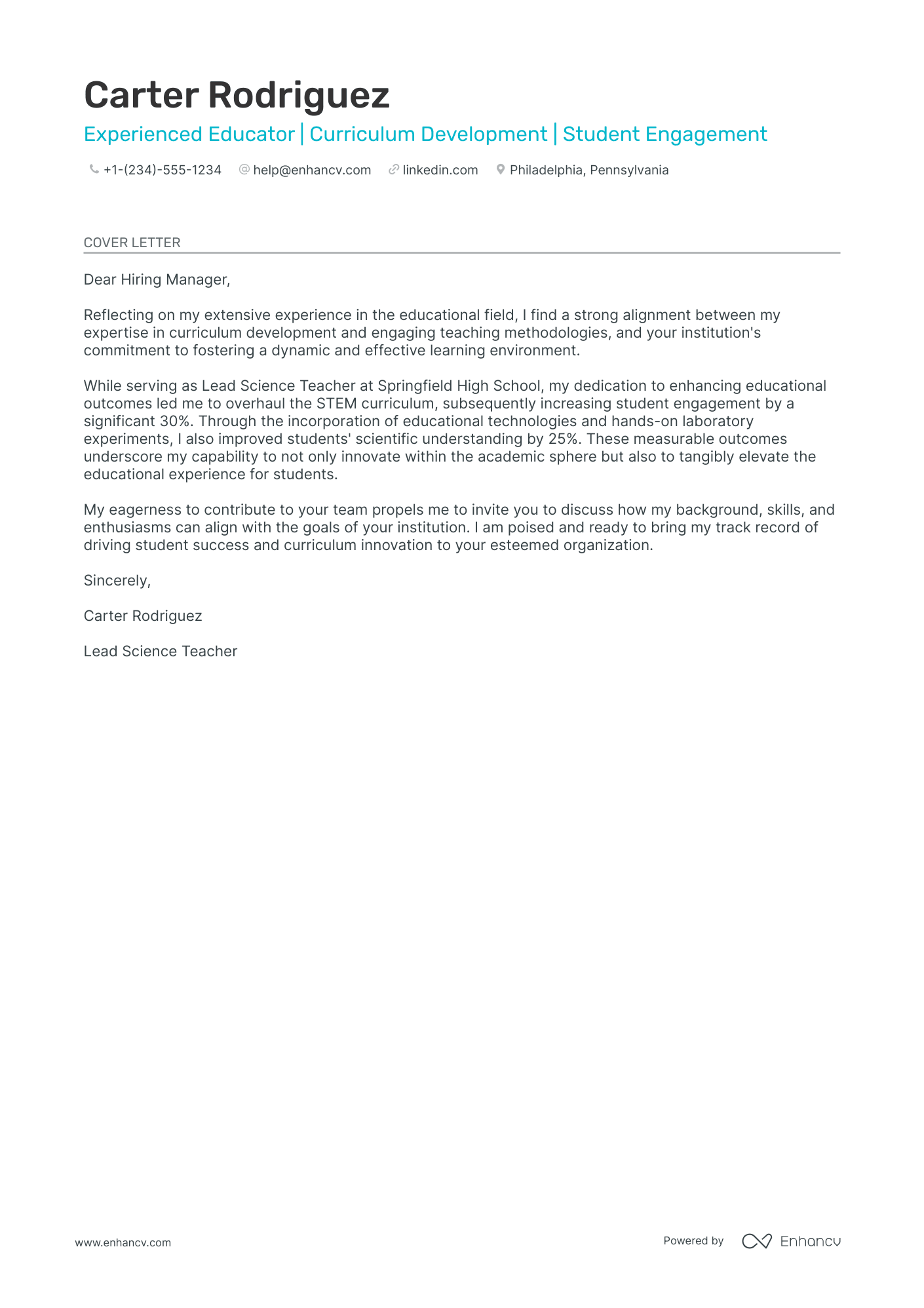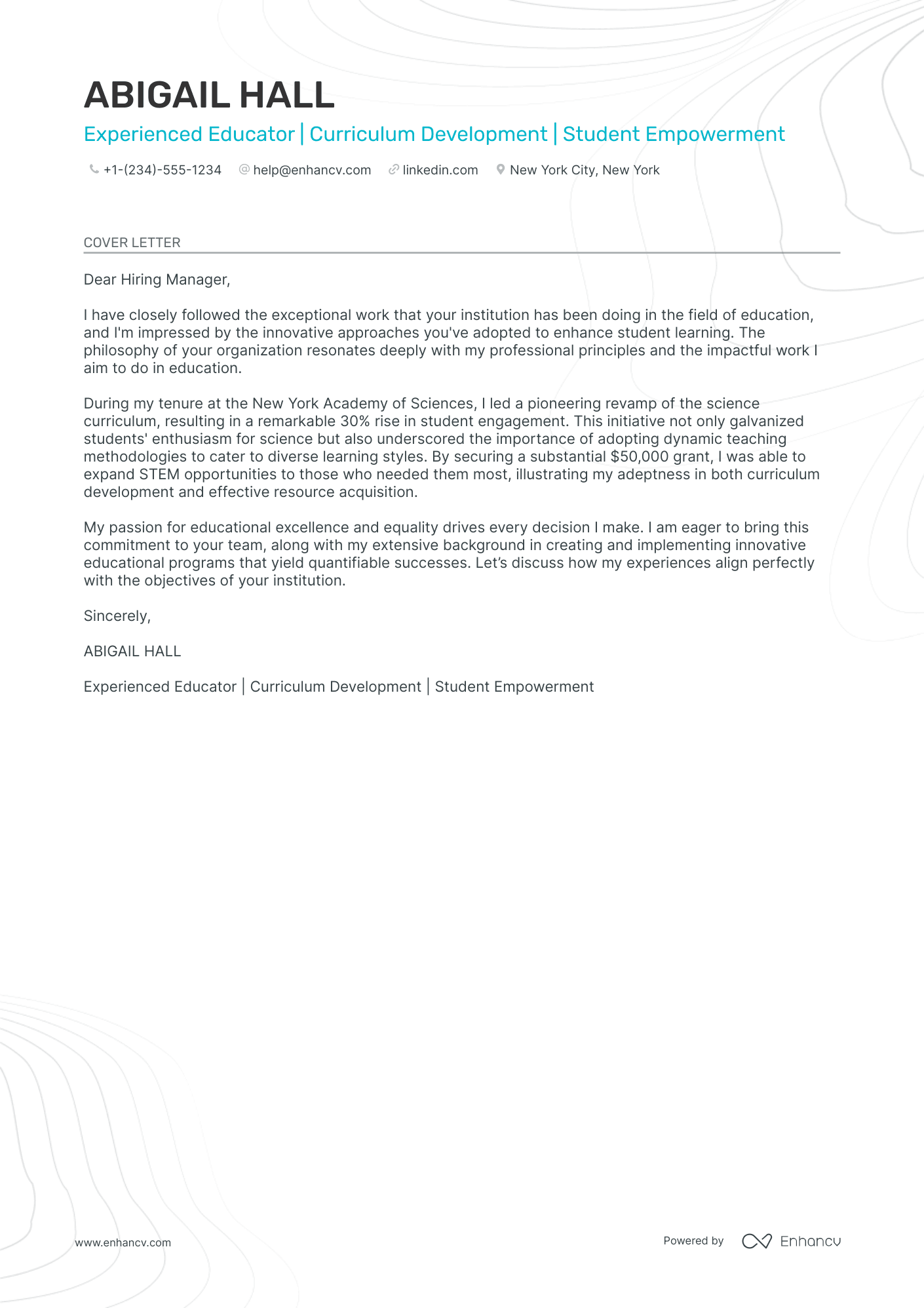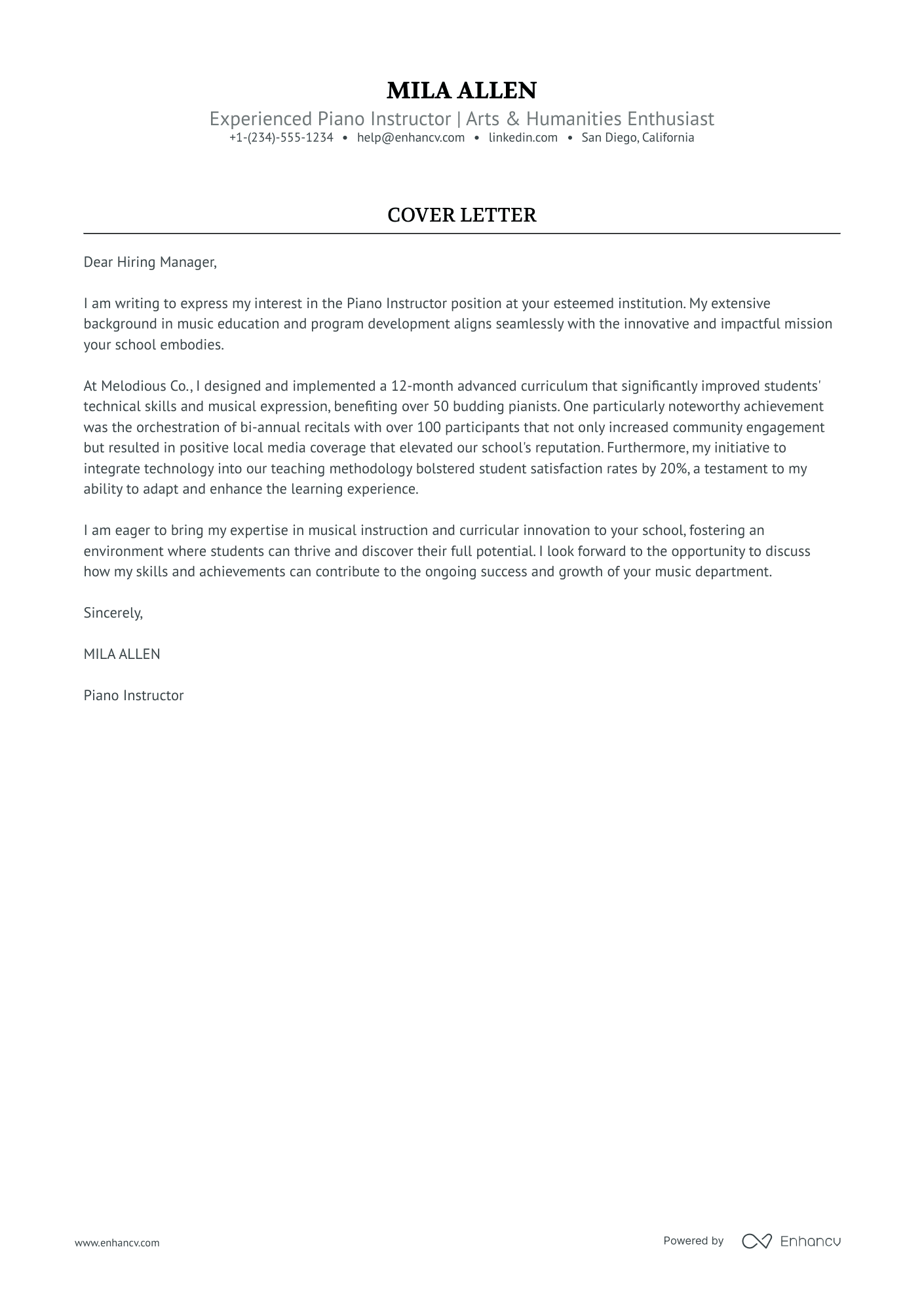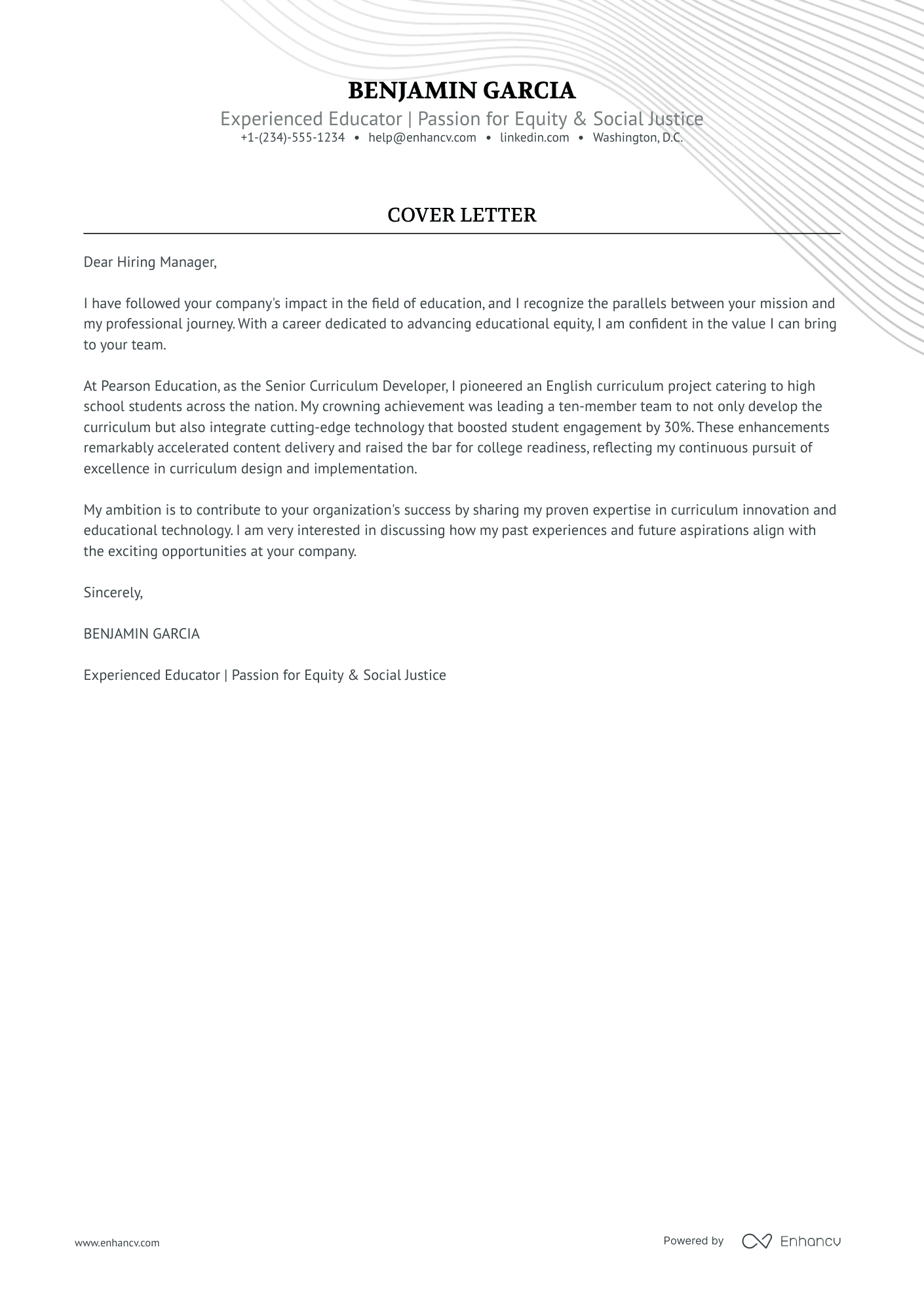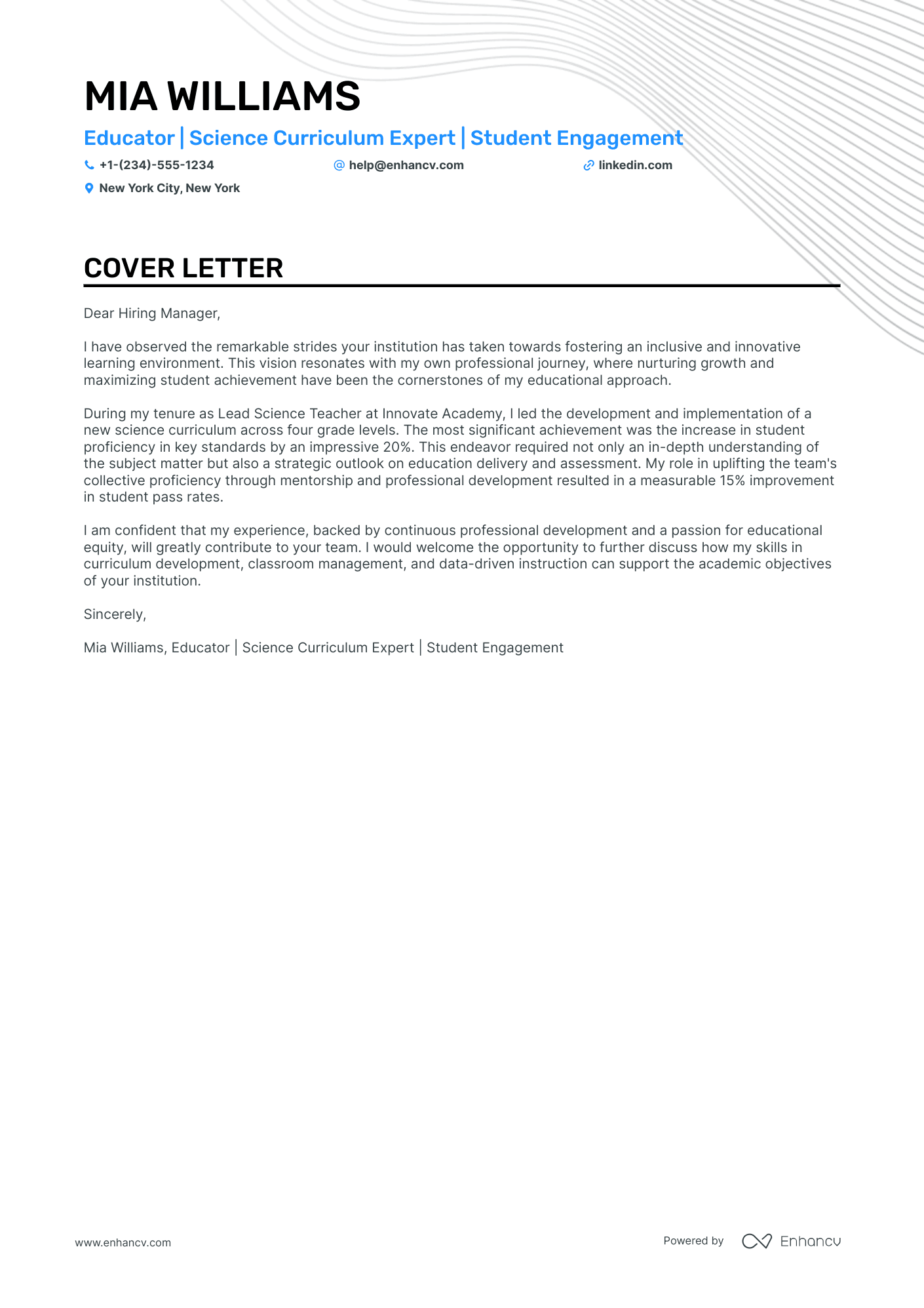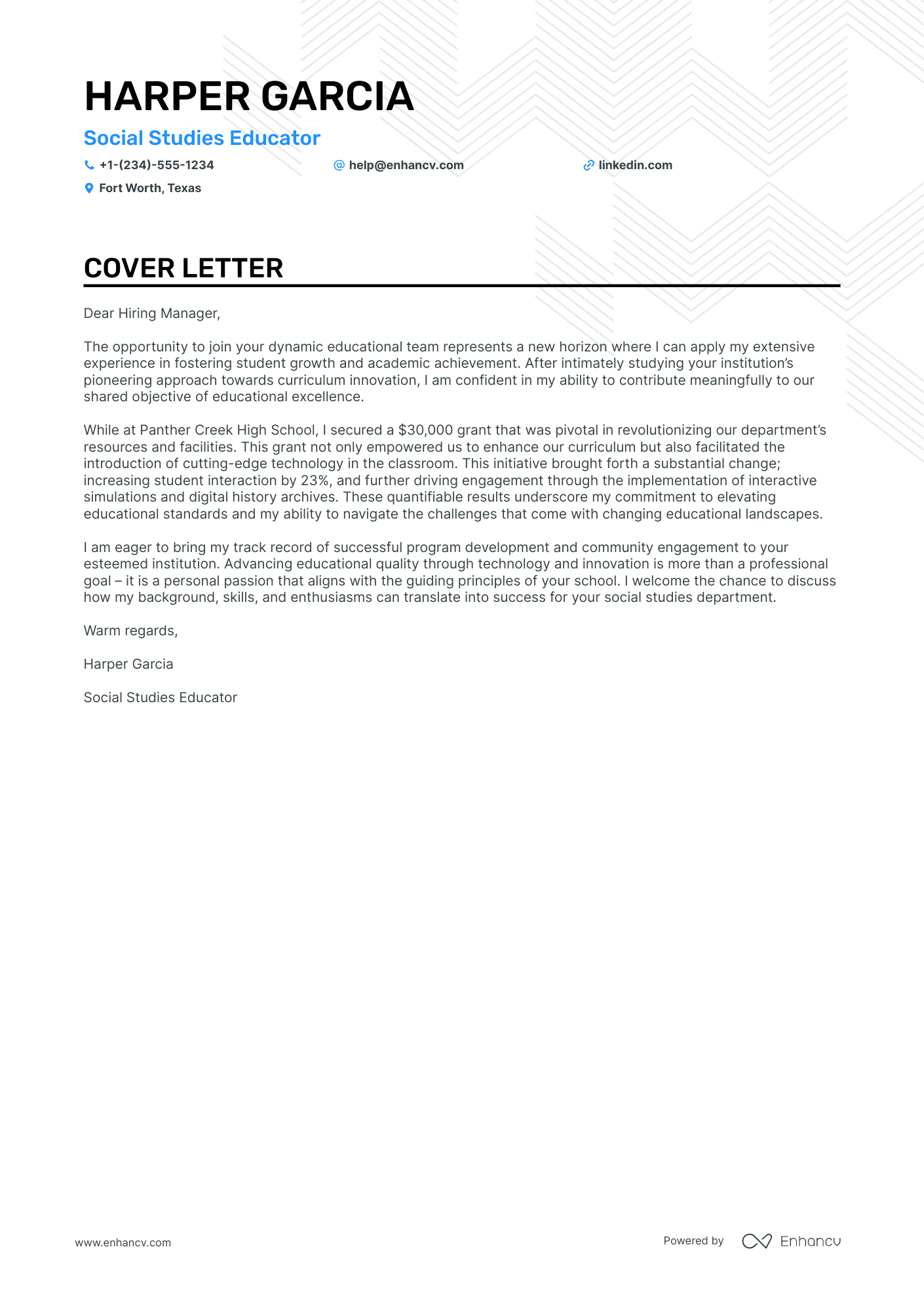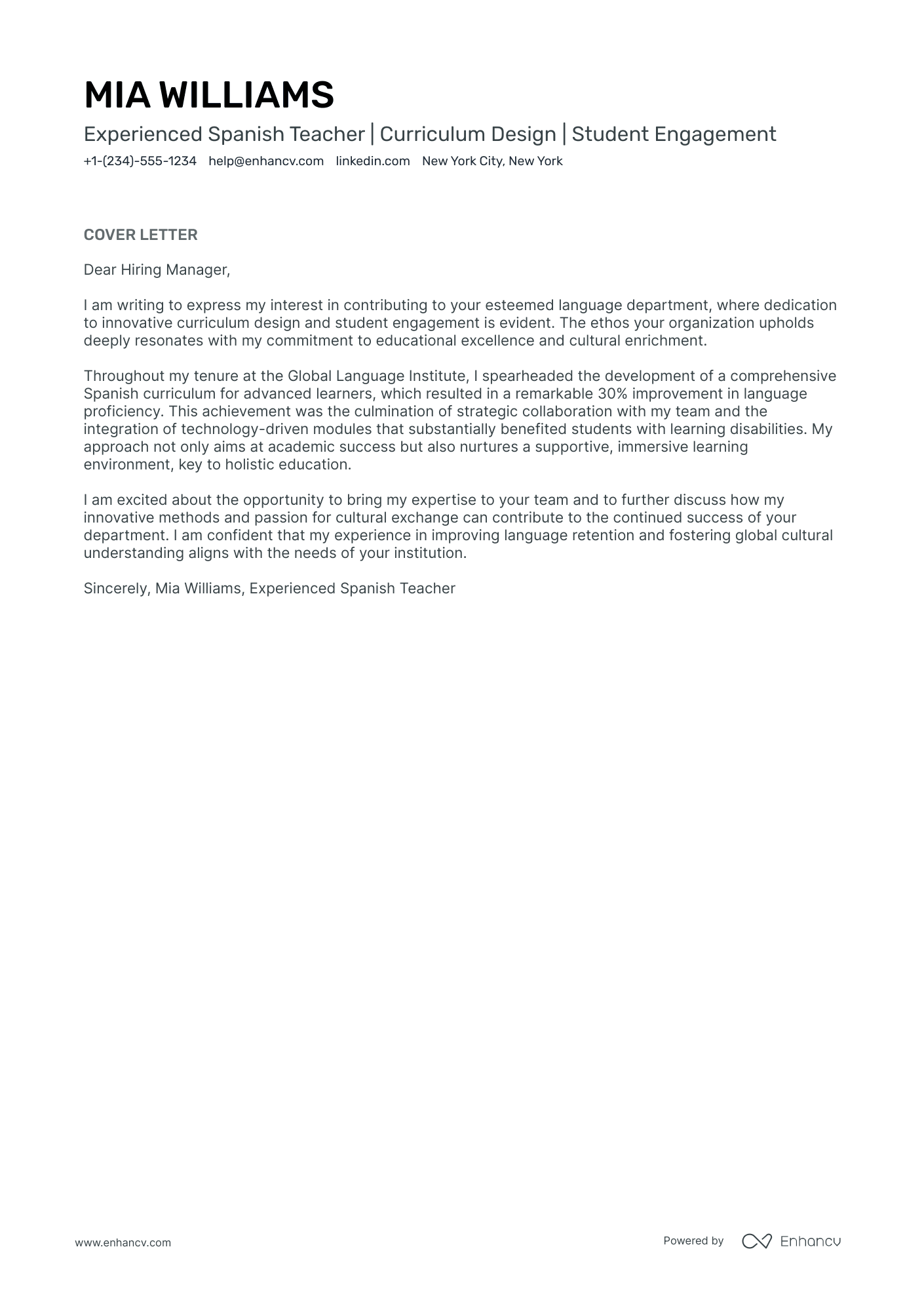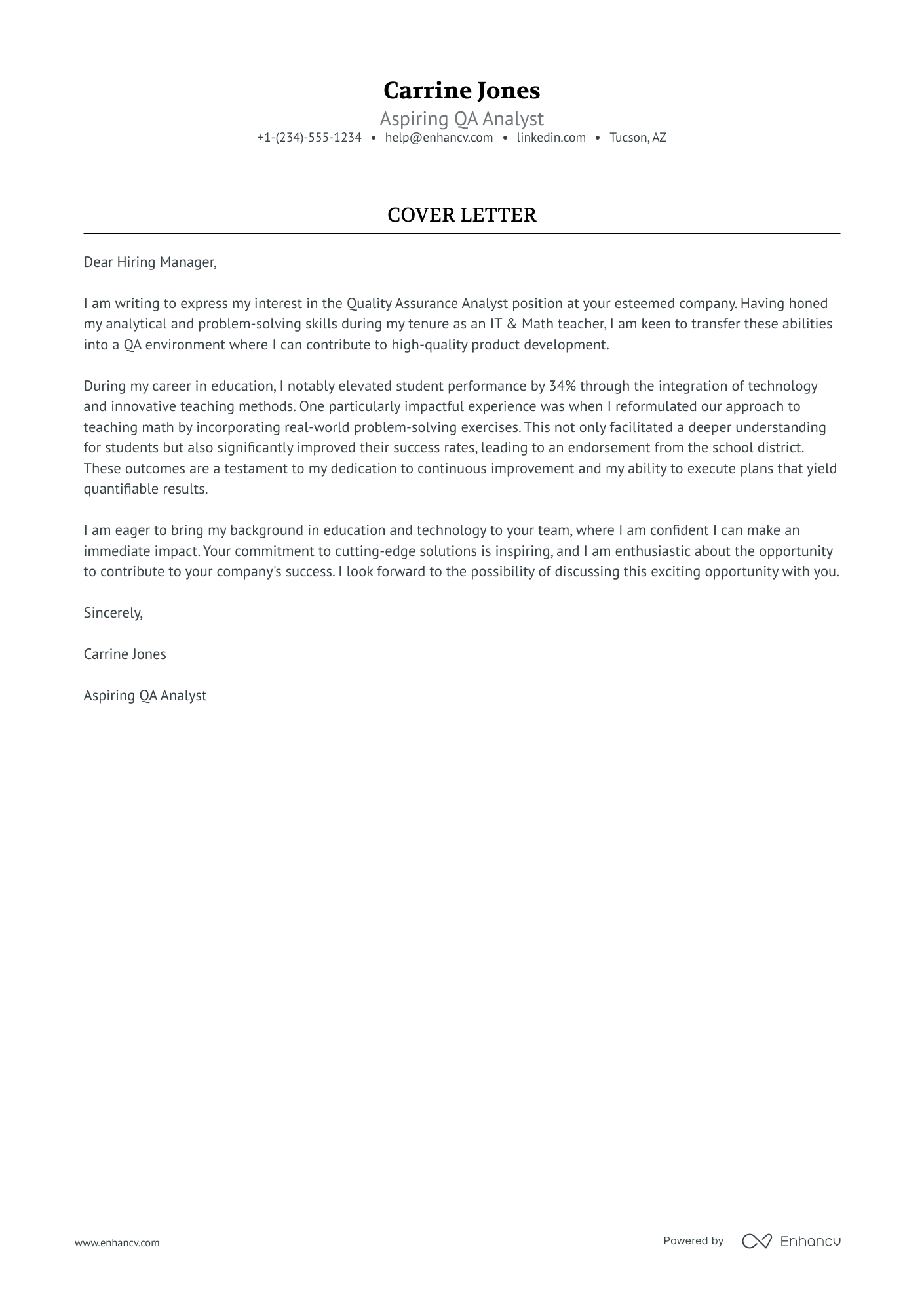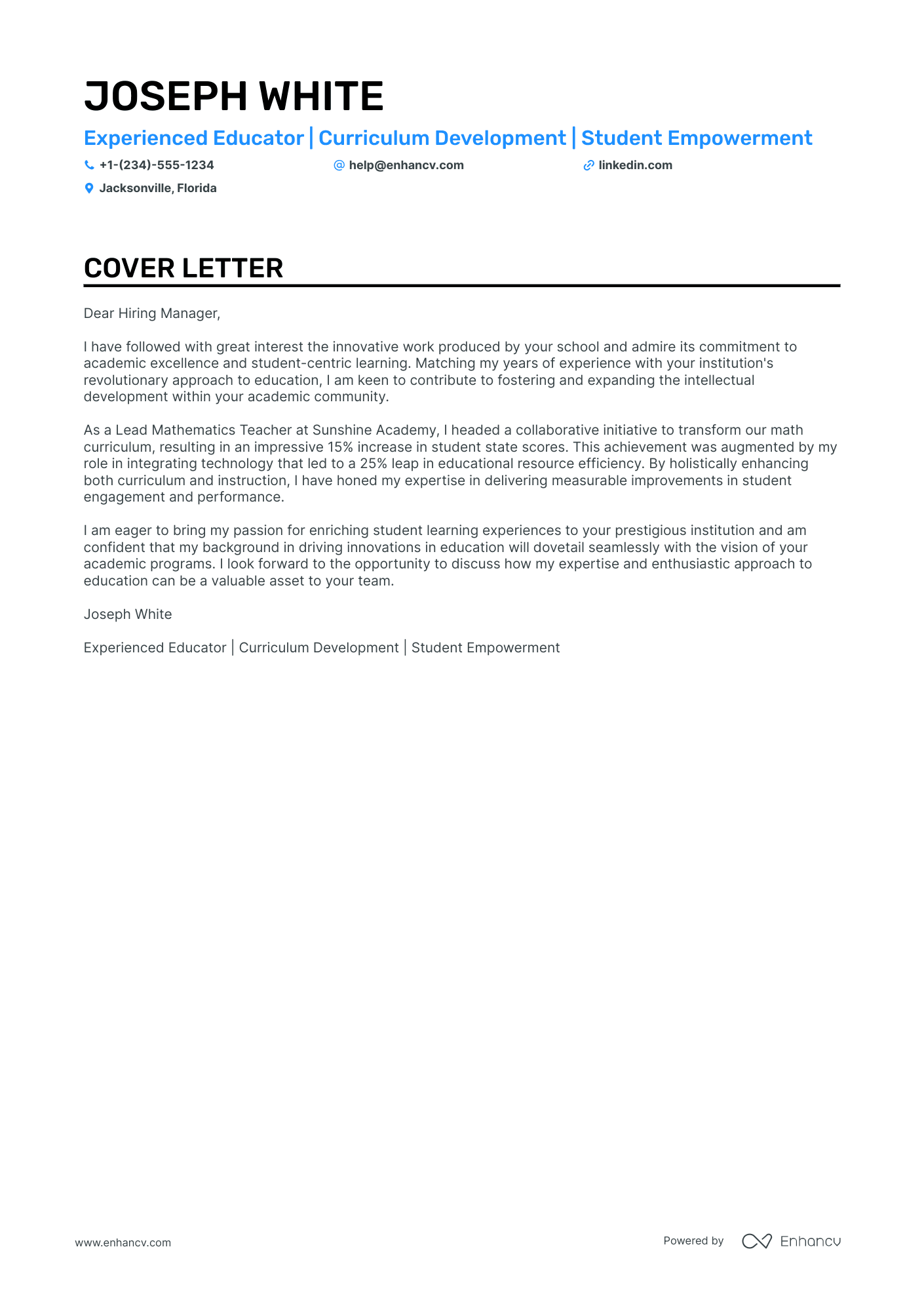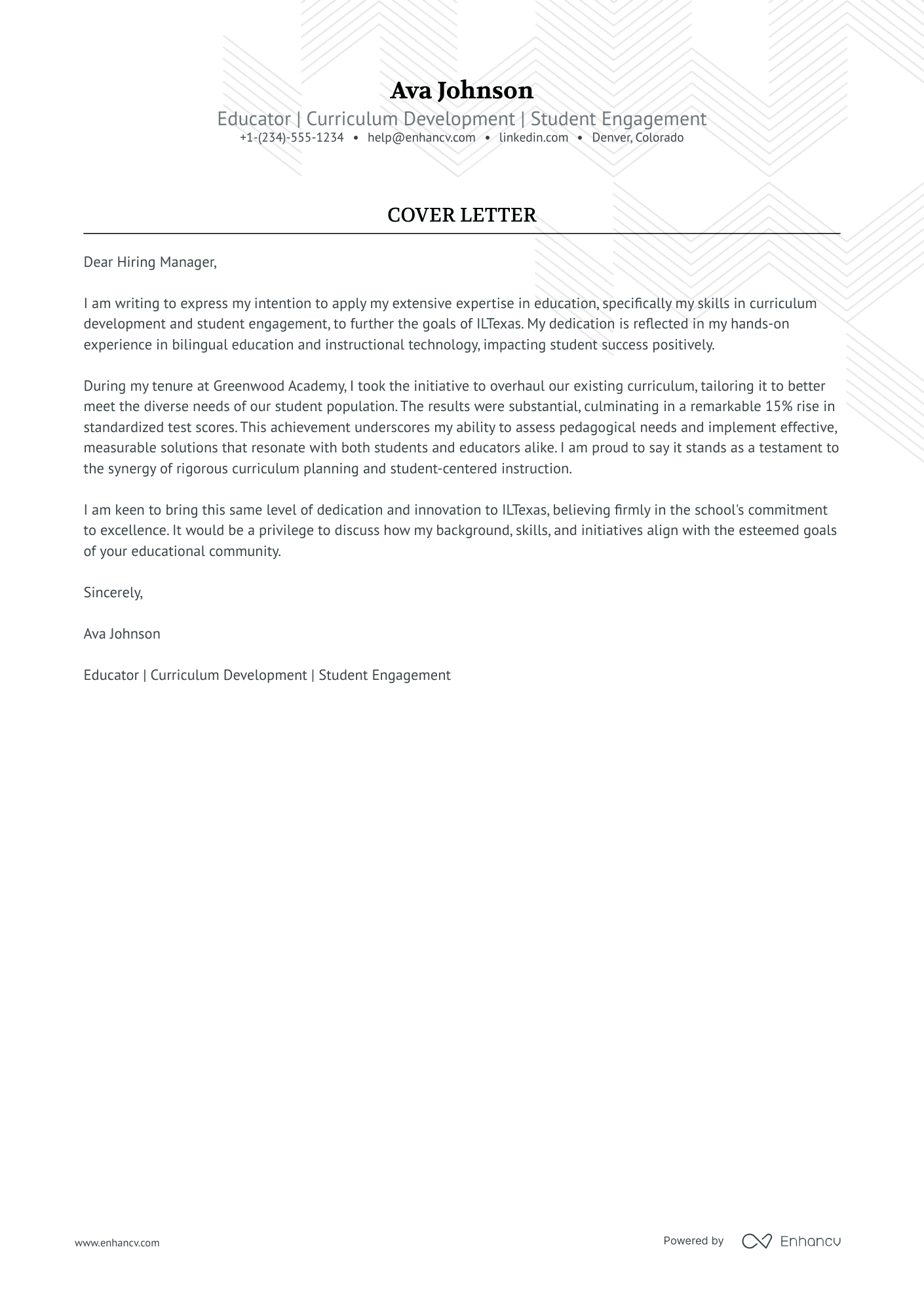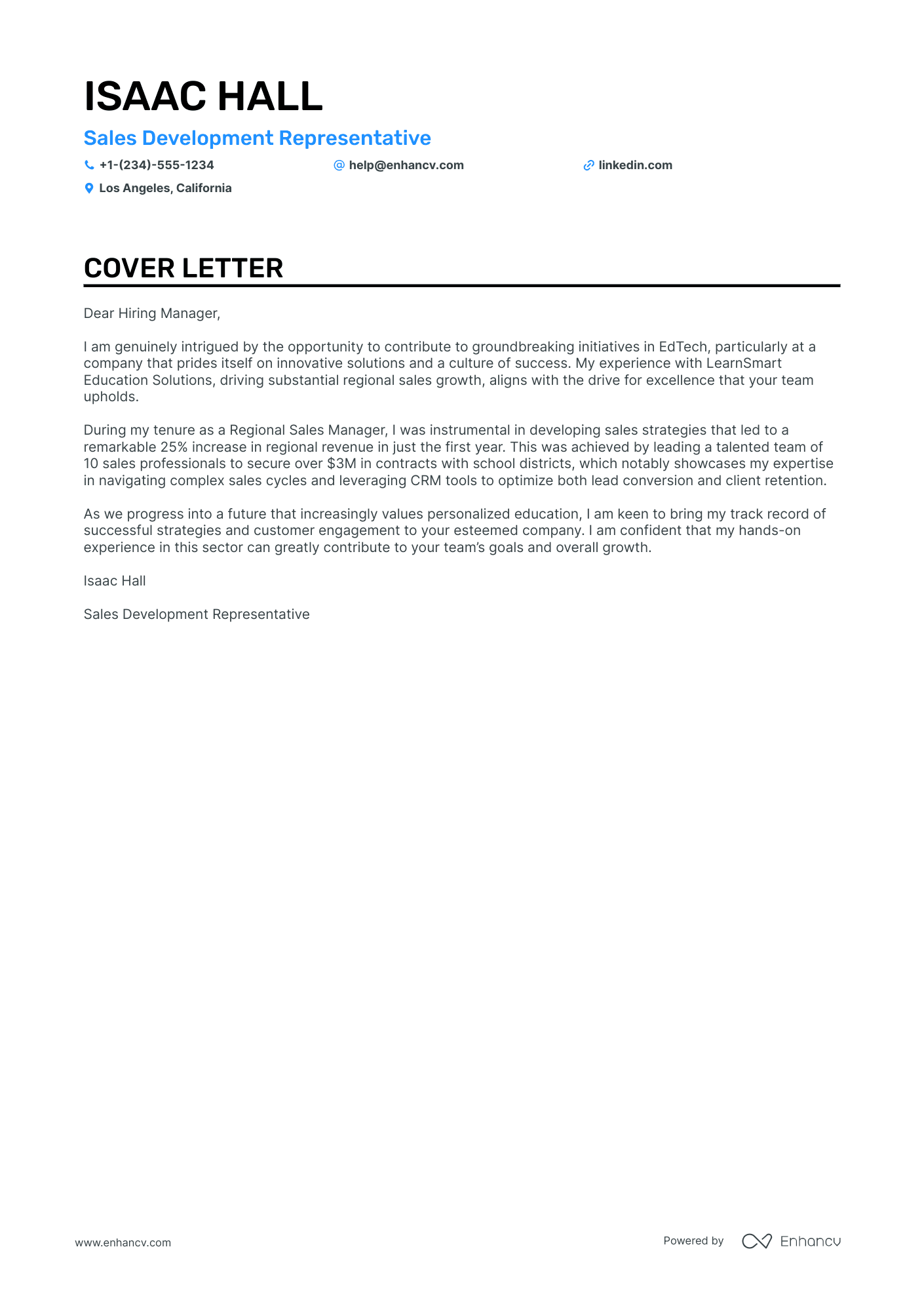Embarking on the job hunt, you've realized that the perfect teaching position requires more than just a polished resume; it demands a compelling teacher cover letter. Avoid merely echoing your CV. Instead, weave a narrative around a crowning professional achievement, showcasing your unique value. Striking the right balance between formality and originality—bypassing clichés—is crucial. Remember, your introduction to potential employers should be concise; a single page is your canvas to make a lasting impression.
- Including all the must-have paragraphs in your structure for an excellent first impression;
- Learning how to write individual sections from industry-leading cover letter examples;
- Selecting the best accomplishment to tell an interesting and authority-building professional story;
- Introducing your profile with personality, while meeting industry standards.
And, if you want to save some time, drag and drop your teacher resume into Enhancv's AI, which will assess your profile and write your job-winning cover letter for you.
If the teacher isn't exactly the one you're looking for we have a plethora of cover letter examples for jobs like this one:
- Teacher resume guide and example
- Sunday School Teacher cover letter example
- Kindergarten Teacher cover letter example
- Summer School Teacher cover letter example
- Academic cover letter example
- Biology Teacher cover letter example
- Pre K Teacher cover letter example
- School Counselor cover letter example
- Mentor cover letter example
- Preschool Assistant Teacher cover letter example
- Distance Learning Teacher cover letter example
Teacher cover letter example
Aiden Kelly
Queens, NY
+1-(234)-555-1234
help@enhancv.com
- Demonstrating specific impactful initiatives, such as the extracurricular sessions that improved student retention rates, conveys the applicant's ability to implement successful educational strategies.
- Referencing quantifiable achievements (e.g., raising retention from 75% to 89%) provides concrete evidence of the candidate's effectiveness in their role and suggests a results-oriented mindset.
- Expressing an eagerness to collaborate and bring expertise to the hiring institution shows the candidate's enthusiasm and readiness to contribute positively to the new environment.
- Highlighting not just subject knowledge but also pedagogical skills and success in fostering a passion for learning among students illustrates a well-rounded instructional approach that goes beyond textbook teaching.
What should your teacher cover letter look like - formatting and organizing your information
Have you ever wondered what are the must-have sections you need to include in your teacher cover letter? Our builder sets those up for you with:
- Header - dedicated to your contact information, the role you're applying for, and the date (don't forget to include your name);
- Greeting and opening paragraph - to create a personalized and memorable experience for recruiters;
- Body paragraph - emphasizing your skill set and knowledge that aligns with the role and helps you to stand out;
- Closing paragraph - leaving a great impression and ending with an optional signature.
Use a cover letter template to discover the best formatting for your teacher cover letter: that is single-spaced paragraphs and wrapping your content in a one-inch margin.
Ensure that both your resume and teacher cover letter are in the same font. Stand apart from the crowd by using modern, yet simple fonts, like Chivo and Rubik, instead of the overused Arial and Times New Roman.
Did you know that the Applicant Tracker System (or ATS) won't be assessing your teacher cover letter? Instead, submit your profile in PDF to recruiters to keep the same formatting and the design intact.
Don’t let a busy schedule hold you back. Try our free cover letter generator and build a great letter in seconds.
The top sections on a teacher cover letter
Header: Includes your contact information, date, and the employer's contact details, serving as a professional introduction and making it easy for the school to reach you.
Salutation: Addresses the hiring manager or school principal directly, showing that you've done your research and personalizing the cover letter to the specific educational institution.
Introduction: Captures the recruiter’s attention by mentioning your teaching philosophy, passion for education, or a notable achievement relevant to the teaching position.
Body: Highlights your teaching experience, educational background, and skills, demonstrating how they align with the job description and the school's values, curriculum, and community.
Closing and Signature: Ends the cover letter with a polite expression of your eagerness to discuss how you can contribute to the school, followed by a professional sign-off and your full name.
Key qualities recruiters search for in a candidate’s cover letter
- Classroom management skills: Demonstrates ability to maintain a productive learning environment.
- Knowledge of pedagogical methodologies: Indicates the teacher's understanding of effective teaching and learning strategies.
- Subject matter expertise: Shows mastery in the specific area the teacher will be instructing.
- Adaptability and flexibility: Reflects the teacher's willingness to handle diverse classrooms and adapt to various educational needs.
- Experience with educational technology: Highlights proficiency with digital tools that enhance learning experiences.
- Commitment to professional development: Suggests the teacher's dedication to continuous learning and staying current in educational trends and best practices.
How to personalize your teacher cover letter greeting
Before you start writing your teacher cover letter, take the time to find out who is recruiting for the role.
Search for the recruiter's name on LinkedIn or the corporate website to address them personally in your teacher cover letter salutation.
What if you can't find out who's recruiting for the role?
Always aim to avoid the very impersonal "Dear Sir/Madam" - instead, opt out for "Dear HR Team" or "Dear Hiring Manager" to make a better first impression.
List of salutations you can use
- Dear Hiring Manager,
- Dear [School Name] Selection Committee,
- Dear [Department Head's Title and Last Name],
- Dear Principal [Last Name],
- Dear Superintendent [Last Name],
- Dear Director [Last Name],
Your teacher cover letter introduction and the value you bring
Moving on from the "Dear Recruiter" to your professional introduction.
Use those first two sentences of your teacher cover letter to present the biggest asset you'd bring to the organization.
Don't go into too much detail about your achievement or the skill set, but instead - go straight for the win.
That is - what is your value as a professional?
Would you be able to build stronger, professional relationships in any type of communication? Or, potentially, integrate seamlessly into the team?
Choosing your best achievement for the middle or body of your teacher cover letter
Now that you have the recruiters' attention, it's time to write the chunkiest bit of your teacher cover letter.
The body consists of three to six paragraphs that focus on one of your achievements.
Use your past success to tell a story of how you obtained your most job-crucial skills and know-how (make sure to back these up with tangible metrics).
Another excellent idea for your teacher cover letter's middle paragraphs is to shine a light on your unique professional value.
Write consistently and make sure to present information that is relevant to the role.
Two ideas on how to end the final paragraph of your teacher cover letter
Closing your teacher cover letter, you want to leave a memorable impression on recruiters, that you're a responsible professional.
End your cover letter with how you envision your growth, as part of the company. Make realistic promises on what you plan to achieve, potentially, in the next six months to a year.
Before your signature, you could also signal hiring managers that you're available for the next steps. Or, a follow-up call, during which you could further clarify your experience or professional value.
Keep this in mind when writing your zero experience teacher cover letter
Even though you may not have any professional experience, your teacher cover letter should focus on your value.
As a candidate for the particular role, what sort of skills do you bring about? Perhaps you're an apt leader and communicator, or have the ability to analyze situations from different perspectives.
Select one key achievement from your life, outside work, and narrate a story that sells your abilities in the best light.
If you really can't think of any relevant success, you could also paint the picture of how you see your professional future developing in the next five years, as part of the company.
Key takeaways
Turning your teacher cover letter into a success is all about staying authentic to yourself and relevant to the job:
- Be creative with your teacher cover letter introduction by stating something you enjoy about the company (that is genuine) or about your skill set (to get the recruiters' interested);
- Use single spacing and have a one-inch margin wrapping all around the content of your teacher cover letter;
- Select just one past achievement from your career or life to tell a story of how you've obtained job-crucial skills and how they'd be beneficial to the role;
- The finishing paragraph of your teacher cover letter doesn't necessarily have to be a signature but could be a promise of what you plan to achieve in the role;
- Instead of focusing on your lack of experience, spotlight your transferable skills, one relevant achievement, and career dreams.
Teacher cover letter examples
By Role
